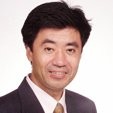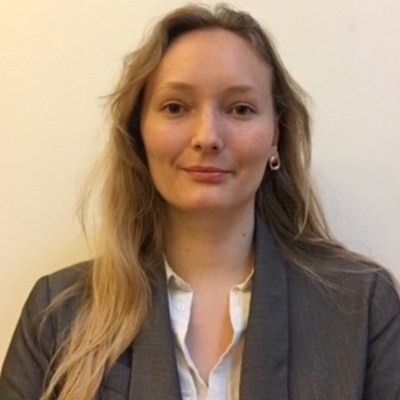Thematic
Working Groups
The INPACE Hub operates as an integrated eco-system structured around 3 Pillars, 5 Clusters, and 16 Thematic Working Groups (TWGs).
Co-led by a European and an Asian INPACE partner organisation, each TWG addresses key focus areas in digital technology, leading to strategic outputs, including policy briefs, panorama reports, and country-specific analyses based on comprehensive desk research and surveys. The Hub fosters collaboration both within and across TWGs.
Cluster 1 aims to serve as a bridge between the TWGs and other clusters and the policy-making level. The work of its TWGs cuts across all technical topics, focusing on the overarching institutional, legal, regulatory and educational tools needed for the implementation of the EU’s Digital Partnerships in the Indo-Pacific.
Thematic Working Groups
The TWG 1 is a transversal working group dealing with standardisation activities. Development of international standards is a long-lasting activity whose timespan usually goes beyond the one of research projects. It has to be managed as a transversal activity, encouraging projects to make use of existing standards while being provided with effective means to contribute whenever relevant.
There already exist a number of initiatives involving EU Standard Development Organisations (SDO) (ETSI/CEN/CENELEC), Asia-pacific one (e.g. TTA in South Korea, ARIB in Japan, BIS in India and initiatives under the Smart Nation program in Singapore) at global level through SDOs (e.g. ITU-T, ISO) and fora (e.g. oneM2M).
The TWG acts as a facilitator between the thematic TWGs 5-16 and relevant standardisation bodies to identify priorities across the involved countries and support their implementation.
Experts
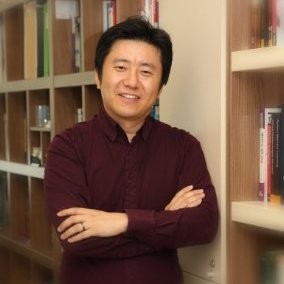
Prof. JaeSeung Song is a full professor in the Department of Computer & Information Security Sejong University. He holds the position of Technical Plenary Vice Chair of the oneM2M global IoT standards initiative. He is also a visiting professor in the Department of Electrical and Computer Engineering, University of British Columbia (UBC) since 2019. Prior to his current position, he worked for NEC Europe Ltd. and LG Electronics in various positions. He received a Ph.D. at Imperial College London in the Department of Computing, United Kingdom. He holds B.S. and M.S. degrees in computer science from Sogang University. His research interests span the areas of beyond 5G and 6G, AI/ML enabled network systems, software engineering, networked systems and security, with focus on the design and engineering of reliable and intelligent IoT/M2M platforms.
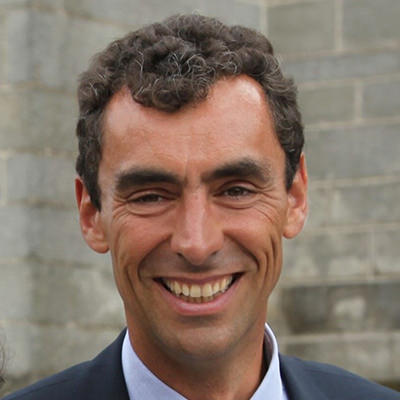
CEO @ EGM
Dr Franck Le Gall (male), is CEO at EGM, an innovative SME focused on integration and validation of emerging technologies. He is driving company development to deploy data technologies over vertical markets (water, agriculture, smart territories, environment, etc.). He involves himself in standardisation area including ETSI where he is chair of the ETSI ISG-CIM working group on NGSI-LD. He is also elected member of the FIWARE Technical Steering Committee (TSC) as well as the joint ETSI-FIWARE Foundation working group on Digital Twins. Finally, he co-chair the Intelligent Smart System (I2S) working group of the ICT4Water European research cluster and got elected as chairman of the FIWARE water domain committee. He continuously contributes and drives several projects for public and private customers.
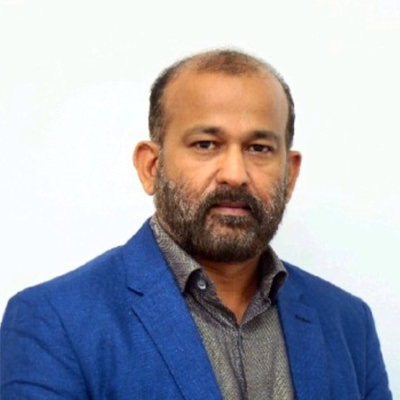
Since 2012, Mr. Dinesh Sharma is associated with EUROPEAN STANDARDISATION PROJECT, SESEI as Director – Standards and Public Policy. In this role, Mr. Sharma acts as the focal point in India representing European Standards Organizations (ETSI, CEN, CENELEC), European Commission (EC) and European Free Trade Association (EFTA). Mr Sharma’s current role as SESEI focuses around various sectors, topics falling under the domain of Digitalisation, Green/Clean Energy and other topics of mutual interest to India and EU.
Prior to this, Mr. Sharma worked with Ericsson for 15 years, with last profile as “Director – Regulatory Affairs & Industry Relation”. Mr. Sharma began his career in Technical Customer Support back in 1992 and has over 32 years of industry experience both in India and abroad in various profiles.
Mr. Sharma holds a bachelor’s degree in Electronics, and highest honors in Business Management from Stratford Institute, USA, and a SUN Solaris certification.
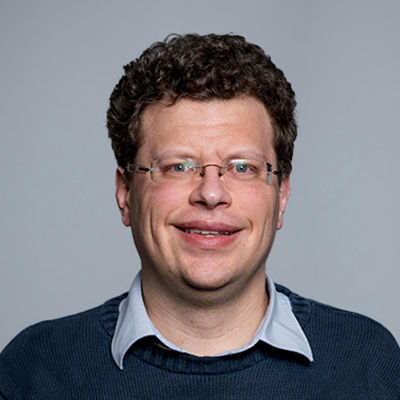
Principal Standardization Engineer @ NEC Laboratories Europe
Dr. Martin Bauer is a Principal Standardization Engineer in the Data Ecosystems and Standards group at the NEC Laboratories Europe (NLE) in Heidelberg, Germany. He studied Computer Science at the University of Stuttgart and the University of Oregon and received his doctorate degree from the University of Stuttgart, Germany, in 2007. In 2005 he joined the NEC Laboratories Europe (NLE), where he has been working on context and IoT related research projects as well as standardization activities in the same areas. He is currently working on data space and digital twin related activities and is active in standardization. In particular, he is driving the standardization of NGSI-LD, the core FIWARE API, in ETSI ISG CIM and is a vice-chair of the group. He is active in FIWARE and is a member and vice-chair of the FIWARE Technical Steering Committee. In addition, he is active in the data space area.
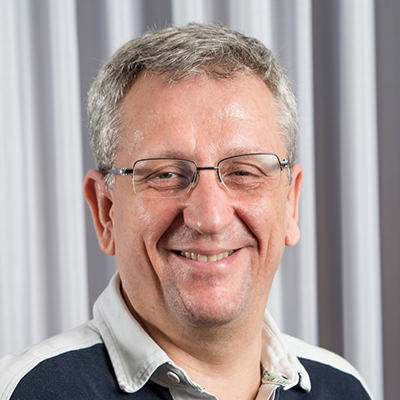
The role of the TWG 2 is to look at the legal, institutional and policy aspects relevant to the implementation of the EU’s Digital Partnership Agreements (DPAs) with Japan, the ROK and Singapore, and the TTC with India. Expert input is based on the analysis of relevant strategic documents in the EU and each of the regional countries, including national strategies and action plans related to security and defence (cyber security, EDT, AI, etc.), economic security, digital transformation and governance of new technologies. In cooperation with national experts, the TWG aims to a) map the legal and institutional environment in each of the target countries, b) identify the key players/ actors/ agencies, and c) identify enablers and challenges for advancing cooperation with the EU. In concrete terms, this involves desk research, in combination with input from webinars and in-person seminars including experts and policy practitioners from the EU and the target countries. The findings will be published in the form of Policy Briefs (1 per partner country), providing a condensed overview of the rationale, stakes, and challenges of each DPAs for the policy community and interested public. Within the INPACE HUB, involved European and regional policy experts and practitioners will also gain a networking opportunity enabling them to communicate directly and inject content on existing and future policies.
Experts
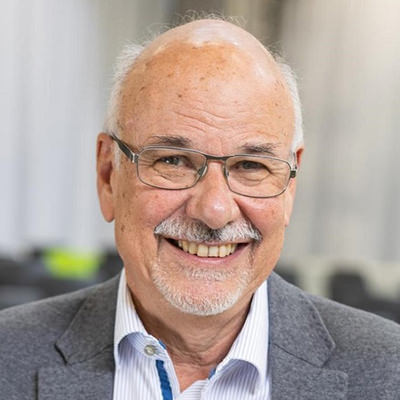
- Chair of the Advisory and Programming Group @ A.SPIRE, Brussels
- Project Director @ ZEDO e.V. Dortmund
- In-house Consultant @ ENRICH GLOBAL
Received a Dipl.-Ing. degree in Electrical Engineering from Ruhr-Universität Bochum, Germany, 1978, and the Dr.-Ing. degree in Systems and Control 1981 from Universität Duisburg, Germany. Was employed as Group Leader at Fraunhofer IITB Karlsruhe, Germany 1986 – 1990 for Automation in the Process Industries, then appointed Full Professor at TU Dortmund for Process Dynamics and Operations in 1990. He served as VIce-Rector of TU Dortmund for Research and International Cooperation 2002-2006 and later as Commissioner of the Rector of TU Dortmund for International Relations.
Sebastian Engell received an ERC Advanced Investigator Award in 2011. He is a (co-)author of more than 650 publications that are listed in Scopus and received 3 best paper awards from leading international journals. He has ample experience in EU-funded projects as coordinator, scientific leader and workpackage leader and graduated more than 90 doctoral students at TU Dortmund.
He currently is the Chair of the Advisory and Programming Group of A.SPIRE, the representative of industry and research organizations within the EU PPP Processes4Planet and Project Director of several EU-funded projects related to circular economy and industrial / industrial-urban symbiosis at ZEDO e.V., Dortmund. He supports INPACE as an in-house consultant of Enrich Global, Sophia Antipolis, France.
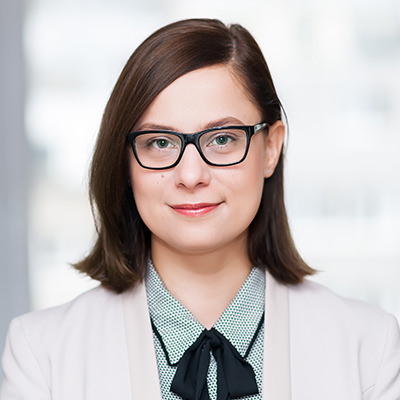
Dr Raluca Csernatoni is a research fellow working on European security and new technologies like Artificial Intelligence (AI) at Carnegie Europe in Brussels, Belgium. At Carnegie, she is a team leader and senior expert on new technologies for the ‘EU Cyber Diplomacy Initiative – EU Cyber Direct’ (EUCD) project, and leads Carnegie Europe’s research project on ‘The EU’s Techno-Politics of AI’ supported by the McGovern AI Grant. Csernatoni is currently also a professor on European security and defence focusing on emerging and disruptive technologies at the Brussels School of Governance (BSoG) and its Centre for Security, Diplomacy and Strategy (CSDS), Vrije Universiteit Brussel (VUB), Belgium. At CSDS, she is a senior research expert on digital technologies in the context of the EU-funded project, ‘Indo-Pacific-European Hub for Digital Partnerships: Trusted Digital Technologies for Sustainable Well-Being – INPACE’. Additionally, Csernatoni is a visiting professor of European security and high-tech warfare with the Department of International Relations of Central European University (CEU) in Vienna, Austria.
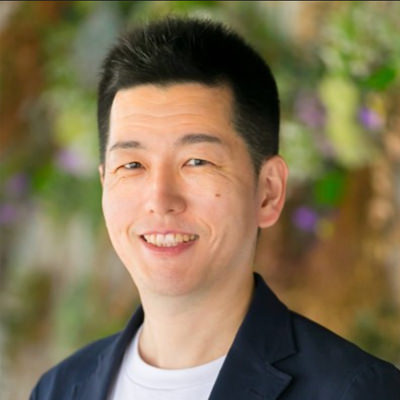
Director, Global Coordination Division, JPCERT, Senior researcher,
Keio Research Institute
Dr Koichiro Komiyama is the Director of the Global Coordination Division at the Coordination Centre of the Japanese Computer Emergency Response Team (JPCERT/CC). He has also been been a visiting scholar at Keio University’s Global Research Institute (KGRI) since 2016, and the Deputy Chair of the Research Advisory Group at the Global Commission on the Stability of Cyberspace (GCSC) since 2017. He holds a Bachelor’s degree in Business Administration from Aoyama Gakuin University, and a PhD from Keio University Graduate School of Media and Governance. His research interests include phishing, insider threats, and targeted attacks.
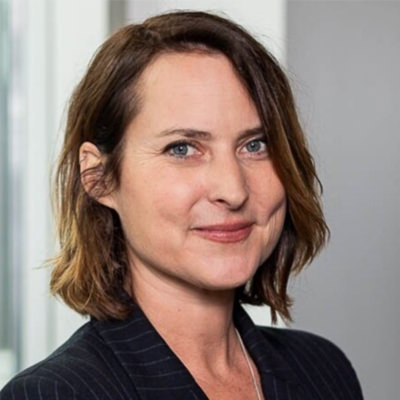
Eva Pejsova holds the Japan Chair at the Centre for Security, Diplomacy and Strategy (CSDS) of the Brussels School of Governance (BSoG). Until 2019, Dr Pejsova was Senior Analyst for Asia at the European Union Institute for Security Studies (EUISS), the EU’s official agency for foreign and security policy research and analysis. She obtained her PhD in Strategic Studies from the S. Rajaratnam School of International Studies (RSIS) in Singapore and has previously worked with the Czech Ministry of Foreign Affairs, the French Prime Minister’s Office, the OECD, and the Asia-Europe Foundation (ASEF). Dr Pejsova regularly lectures at SciencesPo (Paris School of International Affairs) in Paris, the Geneva Centre for Security Studies (GCSP), as well as briefs the Members of the European Parliament. Her research focuses on Indo-Pacific security matters, notably in the field of maritime security, the EU’s engagement in the Indo-Pacific, EU – Japan relations, and Japan’s foreign and security policy.
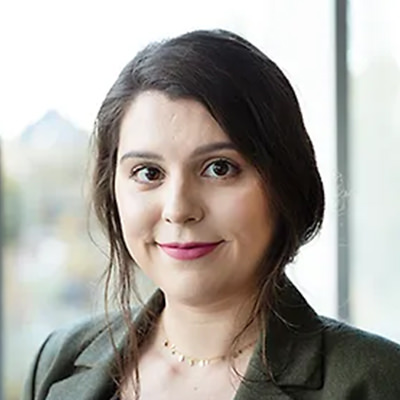
Paula Cantero Dieguez is Head of Projects at the Centre for Security, Diplomacy and Strategy (CSDS). As a research hub at the Brussels School of Governance of Vrije Universiteit Brussel (VUB), CSDS seeks to establish comprehensive theoretical and policy coverage of strategic competition and its impact on Europe, whilst paying particular attention to the Indo-Pacific region. Paula manages the project acquisition and implementation of various CSDS programmes, including the Korea Chair and Japan Chair.
Paula obtained a M.A. in International Relations from Yonsei University Graduate School of International Studies and a B.A. in Japanese Studies from Ghent University with great distinction. From 2013 to 2017, she was awarded the Korean Government Scholarship Program (GKS) and lived in Seoul completing a Korean language training and her study. She spent six months in Kanazawa, Japan, for an academic exchange. Paula previously worked at the European External Action Service, European Delegation to the Republic for Korea, in the Political, Press & Information Section.
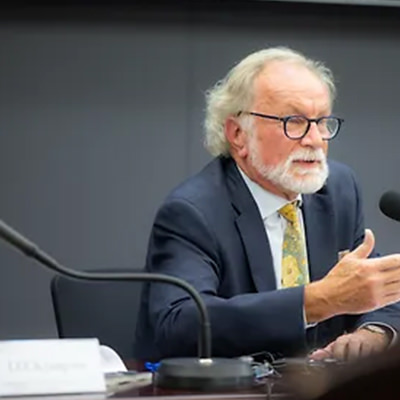
Distinguished Professor @ Brussels School of Governance, VUB
Distinguished Professor at the Center for Security, Diplomacy and Strategy, Brussels School of Governance. He is also adjunct Professor at Libera Università Internazionale degli Studi Sociali (LUIIS) Rome, Webster University Vienna, University of Innsbruck. He held guest professorships at Ritsumeikan University-Kyoto, Asia Pacific University-Beppu, Kobe University, Keio University. Among various fellowships & senior advisor positions to note: Geneva Centre for Security Policy, Austrian Institute for European and Security Policy, Vienna Institute for International Economic Studies, Austrian Society for European Policy, Center for Asia Pacific Strategy-Washington. He is a regular speaker at international conferences.
Education: University of Innsbruck: 1978 doctor juris; 2005 Habilitation in international politics (PhD equivalent); Diplomas in international relations from Johns Hopkins University-Bologna Centre; Graduate Institute for International Studies, Geneva.
Diplomatic career (ret): Ambassador of the European Union to the Republic of Korea (2017-2020); Switzerland & Liechtenstein (2007-2011), Deputy Head of Mission of the Delegation of the EU to Japan, Asia-Europe Meeting (ASEM) Counsellor. Minister-Counsellor at the Mission of Austria to the EU and to GATT; panellist WTO dispute settlement; Co-chair trade of the OECD Trade and Environment Experts Group; Austrian Deputy Trade Commissioner for Western Africa out of Abidjan/Côte d’Ivoire, and Japan.
Focus of research, publications, teaching: EU foreign and security policy with special attention to Northeast Asia (Japan, Korean Peninsula) and the Indo-Pacific; cyber security, intersection geopolitics and geoeconomics, economic security. About 200 related publications – monographs, articles, policy papers and reviews. Founding editor of the CSDS Policy Briefs.
Special honours: Order of Merit, Silver with Star, Republic of Austria (2019). Honorary Citizen of the Metropolitan City Seoul (2020).

–
–
The Thematic Working Group on Joint Programming explores opportunities for joint calls for research and innovation projects between the Indo-Pacific Partner Countries and the European Union. These may be bilateral or multilateral calls. It will also discuss the mechanisms of funding and the needs and potential for alignment. The work will build upon the analysis and comparison of the funding landscape in digital technologies and their applications in the partner countries and in Europe.
Experts

- Chair of the Advisory and Programming Group @ A.SPIRE, Brussels
- Project Director @ ZEDO e.V. Dortmund
- In-house Consultant @ ENRICH GLOBAL
Received a Dipl.-Ing. degree in Electrical Engineering from Ruhr-Universität Bochum, Germany, 1978, and the Dr.-Ing. degree in Systems and Control 1981 from Universität Duisburg, Germany. Was employed as Group Leader at Fraunhofer IITB Karlsruhe, Germany 1986 – 1990 for Automation in the Process Industries, then appointed Full Professor at TU Dortmund for Process Dynamics and Operations in 1990. He served as VIce-Rector of TU Dortmund for Research and International Cooperation 2002-2006 and later as Commissioner of the Rector of TU Dortmund for International Relations.
Sebastian Engell received an ERC Advanced Investigator Award in 2011. He is a (co-)author of more than 650 publications that are listed in Scopus and received 3 best paper awards from leading international journals. He has ample experience in EU-funded projects as coordinator, scientific leader and workpackage leader and graduated more than 90 doctoral students at TU Dortmund.
He currently is the Chair of the Advisory and Programming Group of A.SPIRE, the representative of industry and research organizations within the EU PPP Processes4Planet and Project Director of several EU-funded projects related to circular economy and industrial / industrial-urban symbiosis at ZEDO e.V., Dortmund. He supports INPACE as an in-house consultant of Enrich Global, Sophia Antipolis, France.
The Thematic Working Group on Digital Education and skills aims to address the rapidly evolving landscape of digital education. The group’s focus is on the most recent and upcoming trends, such as AI-driven learning, virtual and augmented reality in education, and the use of data analytics in learning. Additionally, the group emphasizes promoting digital literacy to keep pace with technological advancements and bolstering cybersecurity , as well as the importance of upskilling and reskilling to ensure that both teachers and learners are continuously updated with the latest digital competencies to effectively and safely utilize new digital tools in education and at work. Through virtual meetings, collaborative online platforms, and periodic workshops, the group will leverage their combined expertise to create forward-thinking strategies and competence frameworks. Expected outcomes include use case sharing, developing a pilot curriculum incorporating the latest digital trends, and best practice guidelines to support policymakers, educators, and stakeholders in advancing digital education and upskilling and reskilling initiatives in both regions.
Experts
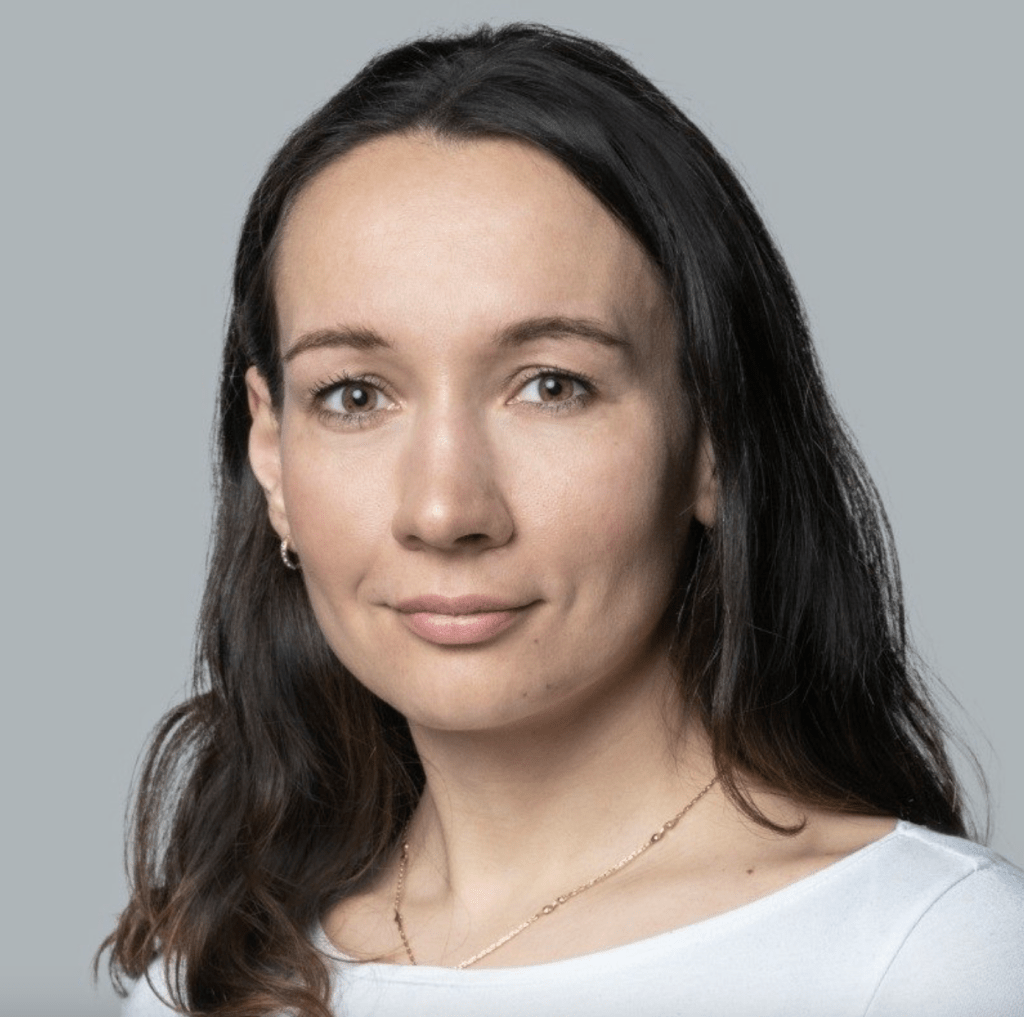
Policy Consultant @ Martel Innovate
Karolina Gyurovszka is a EU policy professional.
A political scientist and an economist by training, Karolina has spent most of her career at the crossroad between Policy and Business, having worked in public affairs. In the private sector, she worked mainly on EU Digital and Tobacco regulation policies. After having transitioned to the exciting world of research projects, Karolina on energy regulation and the funding for green and sustainable energy, especially through energy communities. The communities have stuck with her, as she currently aims to find ways for the EU to support the Open Source communities through the Digital Commons.
Karolina has two children, which makes Digital skills a topic not only of professional, but also personal interest. She believes, that establishig strong digital skills is the very indgredient needed to making INPACE a successful project.
Originally from the Czech Republic, Karolina now lives in Switzerland. She speaks Czech, Slovak, English, German, and tries hard to understand Hugarian.
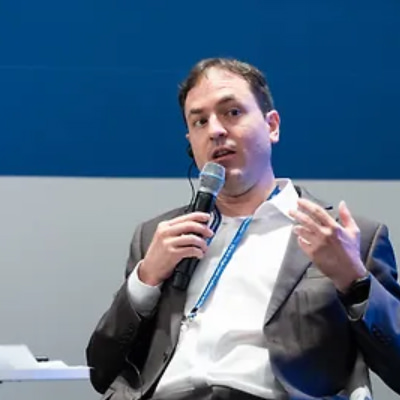
- CEO @ Purple Hackademy
- CEO @ RALFKAIROS
- Cyber Mentor @ Korea Information Technology Research Institute – Best of the Best
Living in Seoul since 2018, Julien Provenzano is the founder and CEO of Purple Hackademy, a cyber training platform for professionals, and RALFKAIROS, where he assists clients in finance, luxury, telecommunications, and defense industries with cybersecurity needs.
He is a cybersecurity certified expert (ISO 27001, MCSE), has nearly 20 years of experience in roles such as system administrator, IT architect, Microsoft Certified Trainer, and security workpackage manager at AIRBUS.
Julien mentors Korean cyber talents through a Korean research institute KITRI’s “Best of the Best” program, He has represented France at international forums like the G20, and serves as a Counselor for French citizens in South Korea and Taiwan.
He is the Korea Ambassador at Pôle d’Excellence Cyber, a French association initiated in 2014 by the Ministry of the Armed Forces and the Brittany region, the Pôle d’Excellence Cyber aims to accelerate the development of autonomous cyber defense with a regal vocation.
He also manages a LinkedIn community of 36,000 cybersecurity professionals and organizes international events like the Finance & Industry Cybersecurity Congress Asia.
He became in 2024 the Korean Cybersecurity Expert for TWG 4 – Digital Education and Skills under the INPACE project.
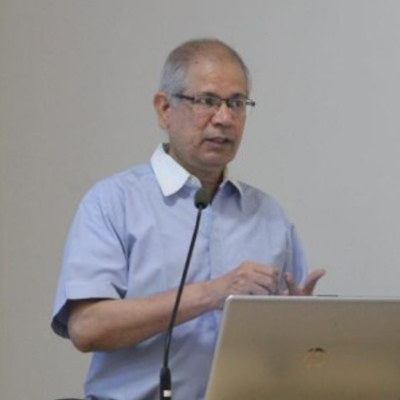
Professor @ Graphic Era Hill University, Dehradun, India
Dr. Ramesh Sharma is recognized as an expert in open, distance, and technology-mediated learning. His academic roles have included being an Adjunct Professor of Computer Science and Engineering at Graphic Era Hill University, India; Visiting Professor at Universidade do Estado da Bahia, UNEB, in Salvador, Bahia, Brazil; Honorary Professor at the Instituto de Educación Superior Público Simón Bolívar in Lima, Peru; Visiting Professor at the University of Fiji; Associate Professor of Educational Technology at Wawasan Open University, Malaysia; Director of the Commonwealth Educational Media Centre for Asia in New Delhi; Regional Director of Indira Gandhi National Open University, India; and Director of Distance Education at the University of Guyana in South America.
He has served on the Advisory Group on Human Resources Development for the United Nations Conference on Trade and Development (UNCTAD), Geneva, Switzerland. During his tenure at the University of Guyana, he collaborated with the UNDP on its Enhanced Public Trust, Security, and Inclusion (EPTSI) project, as well as with Volunteer Service Overseas (VSO) and the United Nations Volunteers (UNV) to develop educational opportunities for communities and youth.
Dr. Sharma is the Editor of the Asian Journal of Distance Education, which was launched in 2003.
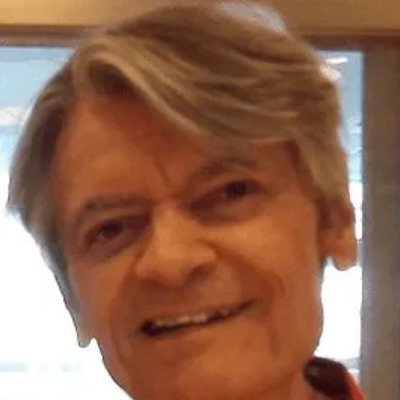
Professor > Lecturer @ Osaka Jogakuin University
Steve McCarty was born in Boston and became a full Professor in Japan. He currently teaches Intercultural Communication at Osaka Jogakuin University. From 2004-2024 he lectured for the Japanese government foreign aid agency JICA, introducing Japanese People and Society to visiting officials and graduate students from around the world. At Kansai University from 2015-2020 he taught ICT to mixed international and domestic students, and held a unique Global Faculty Development position. In 1998 he founded the NPO World Association for Online Education. His CV lists 250+ publications, plus presentations on 100+ different topics (including 9 international conference keynote addresses), with over 615+ citations recognized by Google Scholar. His work spans online education, language teaching with technology, bilingualism, Japan, Asia, and faculty development. “Interview with Steve McCarty” (Dec. 2024). Publications Website: japanned.hcommons.org
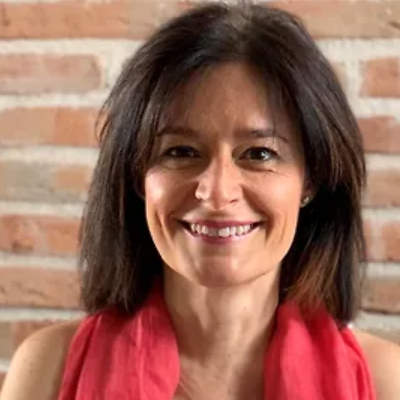
Computer Scientist and PhD in Computer Science. She leads the MIDAS “Data Mining and data simulation group” at the Center of Biotechnology in UPM and she is databases and data mining professor at UPM. Associate Dean of studies and Associate Rector for Graduate Studies (2004-2012). Actively participates in EIT-Digital and EIT-Health in special in the education activities. Co-leads the task force on skills in the BDVA-DAIRO. Her research integrates different aspects of data analytics; with the involvement in different real-world problems with special emphasis on health. She has participated actively in project development (H2020, FP7, EIT). She has published more than 40 papers in journals including Data and Knowledge Engineering Journal, Physics Reports, Information Sciences, Expert Systems with applications and Journal of Medical Systems and International and actively participated in International Program Commitees.
Cluster 2 is a transversal cluster focused on encouraging usage of technologies being tackled within technology clusters (3, 4 and 5) through innovation. It aims at feeding other clusters with identified challenges from thematic sectors detailed below and for which technologies under research and development are expected to contribute in the short to medium term. On an operational level, bidirectional interactions will take place with the organisation of events such as the INPACE co-creation workshops.
Thematic Working Groups
Smart cities and communities as defined by the European Commission, aim at the well-being of their inhabitants, businesses, visitors, organisations and administrators by offering digitally enabled services that contribute to a better quality of life. The concept of Local Digital Twins has recently emerged to provide virtual representations of the area’s physical assets, processes and systems. It drives the development of studies, architectures, standards, toolboxes and demonstration projects. When designing the digital twin, importantly the data foundation (availability, quality and interoperability) and the technical foundation (IoT, cloud computing, big data, AI, 5/6G) have to be addressed. Under the impulsion of the Living-in.EU initiative, which promotes Miniminum Interoperability Mechanisms, is now the Citiverse which aims at creating the European alternative for the metaverse, based on European principles and values. Globally, the world economic forum has set a net zero carbon cities framework for which a global KPIs framework would be relevant to agree upon and an ISO NWIP has been initiated to develop indicators for carbo-neutral cities. Aspects related to eIDAS v2 regulation which establish a framework for digital identity and authentication across Europe as well as new challenges related to On-Life human-centered vision which investigates “cold spots” and “disposable identities” should not be forgotten.
Members
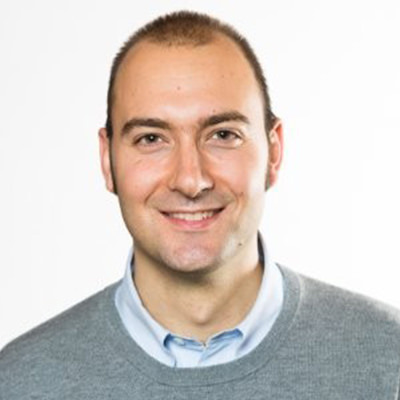
Senior Innovation Consultant @ Martel Innovate
During my career, I learned how to independently approach and manage complex problems in different contexts: from startups to large companies, from academia to research institutes. I have a large experience in managing multicultural teams with heterogeneous backgrounds (researchers, engineers, designers, managers). I have an innate talent for communication: writing grant proposals or presenting research results. I have a technical but also a commercial view on products and projects and I can take decisions based on limited information or short time.
I am good at: mediate & negotiate, empathise, motivate and being persistent I do like: new challenges, being independent, creating and networking

CEO @ EGM
Dr Franck Le Gall (male), is CEO at EGM, an innovative SME focused on integration and validation of emerging technologies. He is driving company development to deploy data technologies over vertical markets (water, agriculture, smart territories, environment, etc.). He involves himself in standardisation area including ETSI where he is chair of the ETSI ISG-CIM working group on NGSI-LD. He is also elected member of the FIWARE Technical Steering Committee (TSC) as well as the joint ETSI-FIWARE Foundation working group on Digital Twins. Finally, he co-chair the Intelligent Smart System (I2S) working group of the ICT4Water European research cluster and got elected as chairman of the FIWARE water domain committee. He continuously contributes and drives several projects for public and private customers.
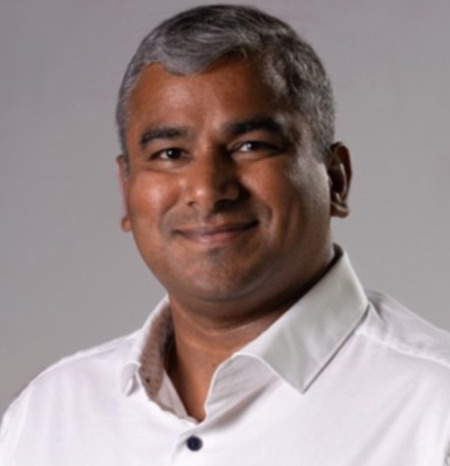
Chandra Challagonda, VP of Business Development at FIWARE Foundation, is a tech executive with over 20 years in digital ecosystems, smart cities, and AI governance. He advances data space development and has impacted EU projects like DSSC, DS4SSCC, and OpenDEI, shaping data-sharing frameworks for security and interoperability. As the founder of Sampo Software, his leadership led to a Microsoft acquisition, marking a career milestone. He also founded APInf Oy, which was acquired by Contrasec Oy. Challagonda’s work in OpenDEI and DS4SSCC focuses on data spaces for smart cities and compliance with GDPR. He also contributes to forums like AI for Developing Countries at the UN, promoting ethical AI and inclusive growth.
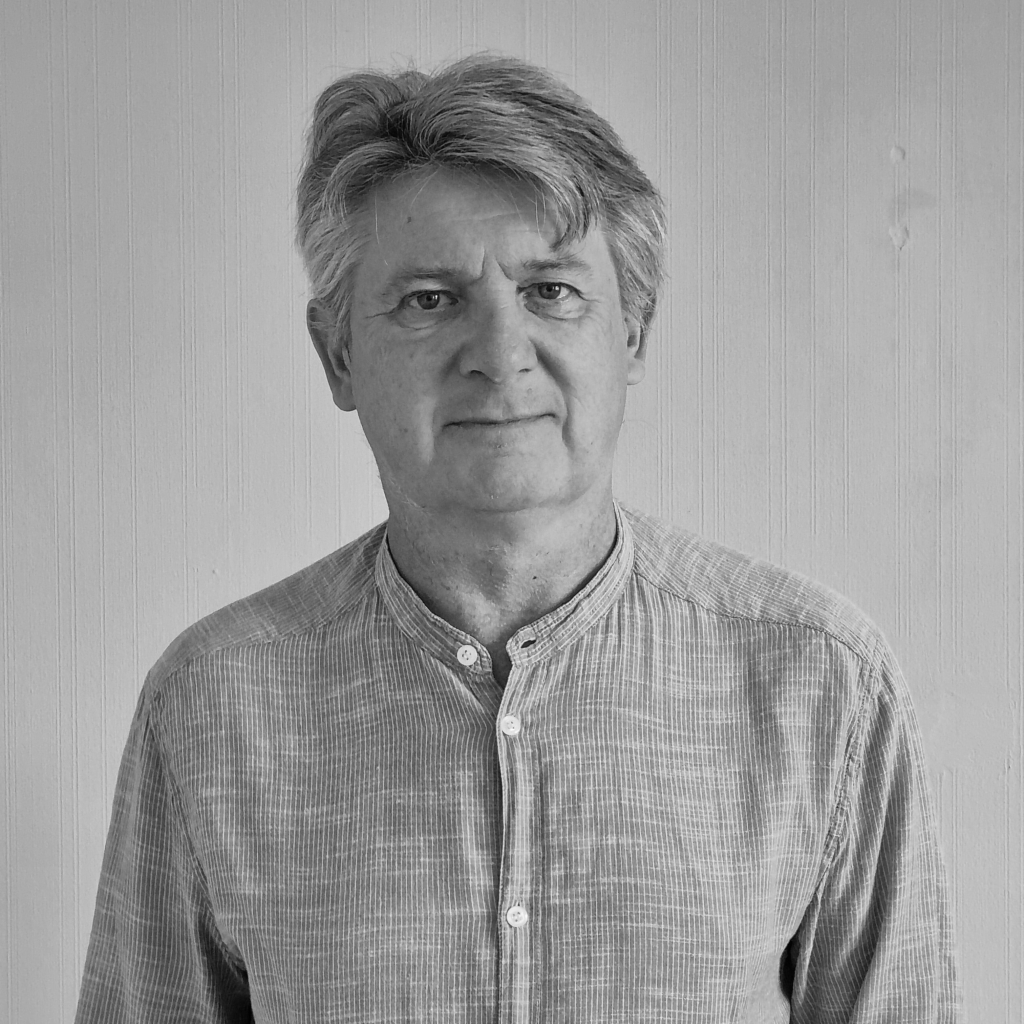
Senior Policy and Communication Expert at Martel Innovate
Rob van Kranenburg is an author of The Internet of Things, a critique of ambient technology and the all-seeing network of RFID, Network Notebooks 02, Institute of Network Cultures. He is co-founder of Bricolabs, Founder of Council and co-founder and the iotday.org
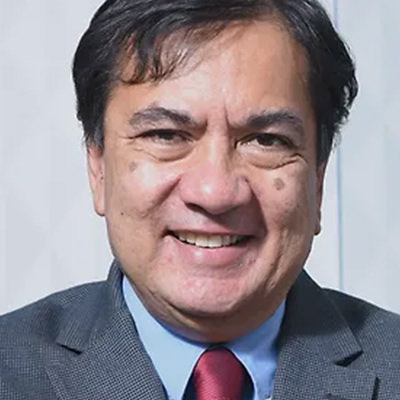
- Chairman @ Centre of Data for Public Good
- Research Professor @ Indian Institute of Science
Inder is the Chairman of the Centre of Data for Public Good and Research Professor at IISc. He was previously Vice President of Software at Ericsson, where he was instrumental in launching their Edge computing efforts. Before that, he was Vice President of Networking at IBM, where he had responsibility for all of IBM’s hardware and software networking products. He has also served as Chief Architect of AT&T and Chief Technology Officer of Prodigy.
He has founded, built-up, and successfully sold two venture-funded start-up companies, ReefEdge and Iptivia, and is an investor and board member in several others. He served as the Founding Chairman of a leading open-source networking software group, OpenDaylight, recruiting dozens of top-tier companies to participate.
Inder has also had a distinguished research career in the area of computer networks, with 20 patents and more than 70 technical publications to his credit. He worked at the IBM T.J. Watson Research Centre, earning two IBM Outstanding Innovation Awards. He has served as editor of several technical journals and was elected Fellow of the IEEE. He has a PhD from Columbia University, New York and a BA from Oxford University, England.

Principal Standardization Engineer @ NEC Laboratories Europe
Dr. Martin Bauer is a Principal Standardization Engineer in the Data Ecosystems and Standards group at the NEC Laboratories Europe (NLE) in Heidelberg, Germany. He studied Computer Science at the University of Stuttgart and the University of Oregon and received his doctorate degree from the University of Stuttgart, Germany, in 2007. In 2005 he joined the NEC Laboratories Europe (NLE), where he has been working on context and IoT related research projects as well as standardization activities in the same areas. He is currently working on data space and digital twin related activities and is active in standardization. In particular, he is driving the standardization of NGSI-LD, the core FIWARE API, in ETSI ISG CIM and is a vice-chair of the group. He is active in FIWARE and is a member and vice-chair of the FIWARE Technical Steering Committee. In addition, he is active in the data space area.
Digitalization is a major driver for enhanced productivity and sustainability of the industrial sector as well as for the safe, reliable and efficient operation of infrastructures and provision of services to businesses and to the citizens. The Thematic Working Group 7 investigates the state of the art and the research and innovation needs in the field of digital technologies for industrial application and in the management and operation of infrastructures (electric power, gas networks) and in the service industries. It is divided into two subgroups:
- Manufacturing industries
- Process industries and infrastructures.
The activities in the Clusters on Networks of the Future and on Trustworthy decision support are closely related to this TWG as these are key enabling technologies for the digitalization of industry, infrastructures and services.
Members

- Chair of the Advisory and Programming Group @ A.SPIRE, Brussels
- Project Director @ ZEDO e.V. Dortmund
- In-house Consultant @ ENRICH GLOBAL
Received a Dipl.-Ing. degree in Electrical Engineering from Ruhr-Universität Bochum, Germany, 1978, and the Dr.-Ing. degree in Systems and Control 1981 from Universität Duisburg, Germany. Was employed as Group Leader at Fraunhofer IITB Karlsruhe, Germany 1986 – 1990 for Automation in the Process Industries, then appointed Full Professor at TU Dortmund for Process Dynamics and Operations in 1990. He served as VIce-Rector of TU Dortmund for Research and International Cooperation 2002-2006 and later as Commissioner of the Rector of TU Dortmund for International Relations.
Sebastian Engell received an ERC Advanced Investigator Award in 2011. He is a (co-)author of more than 650 publications that are listed in Scopus and received 3 best paper awards from leading international journals. He has ample experience in EU-funded projects as coordinator, scientific leader and workpackage leader and graduated more than 90 doctoral students at TU Dortmund.
He currently is the Chair of the Advisory and Programming Group of A.SPIRE, the representative of industry and research organizations within the EU PPP Processes4Planet and Project Director of several EU-funded projects related to circular economy and industrial / industrial-urban symbiosis at ZEDO e.V., Dortmund. He supports INPACE as an in-house consultant of Enrich Global, Sophia Antipolis, France.
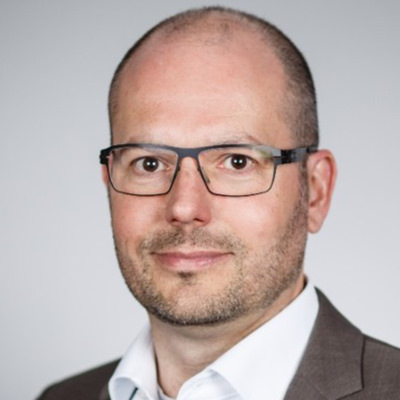
- Scientific Director @ Deutsches Forschungszentrum für Künstliche Intelligenz
- Professor @ University of Kaiserslautern-Landau
- Chairman of the Board @ Technologie-Initiative SmartFactory KL e.V.
–
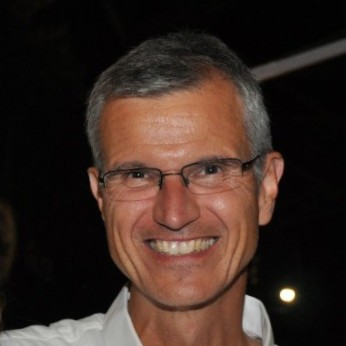
- Head of Process Performance Improvement @ Bayer AG
- Honorary Professor @ TU Dortmund
Prof. Dr.-Ing. Stefan Krämer is the head of the Process Performance Improvement group at Bayer AG. The group works globally to improve the operation and energy efficiency of Bayer’s production processes through simulation, data analysis and process control. Within NAMUR, the User Association of Automation Technology in the Process Industries, he leads work area 2 “Automation Systems for Processes and Plants”. He is also an Honorary Professor at TU Dortmund.
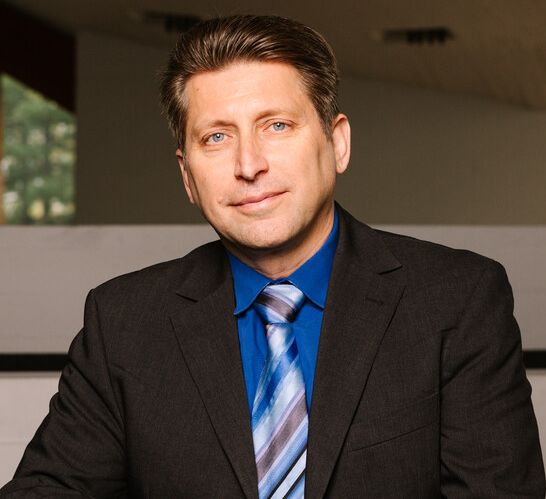
- Professor @ Aalto University
- Research Fellow @ Hitachi Energy Research
Prof. Dr. Iiro Harjunkoski, Aalto University, Finland (Research Fellow at Hitachi Energy Research). Iiro Harjunkoski is a worldwide leader in the application of mixed-integer programming in industrial planning and scheduling problems. He worked for ABB and then for Hitachi Energy in Germany before joining Aalto University in 2024, and is maintaining his ties to Hitachi Energy.
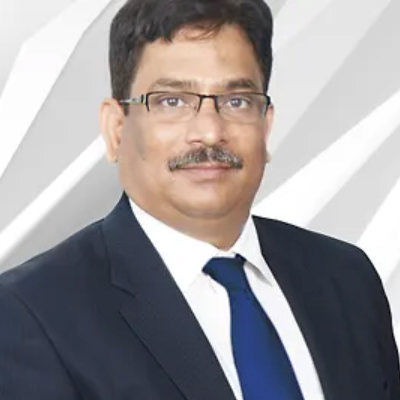
An Electronics & Instrumentation Engineer with thirty-six years of progressive career with diverse leadership roles such as President of Industrial Automation, ABB India, Managing Director of ABB Global Industries & Services Pvt Limited, Service head for ABB India cluster and Global head of ABB Hybrid Industries, beyond being the ABB India Country Management Committee (CMC) member for 10 years.
Credited with setting up and operationalizing the ABB’s largest Global Execution Center, beyond successful execution of large complex customer projects and leading many transformational initiatives.
Extremely results-driven business leader experienced in developing, leading, and coaching global top-tier operations, service and engineering teams in systems and projects based Industrial businesses.
A strategic yet instinctive leader with proven ability to deliver impactful integration of customer business value chain, digital solution innovation and sustainable operational excellence through continuously building capabilities and nurturing future talents, fostering collaboration and practicing the “Performance mindset and entrepreneurial leadership” for an inclusive & sustainable profitable growth.
Recipient of the prestigious “ABB Global CEO award” for external focus in recognition of exemplary leadership for enhancing customer experience and mutual growth / benefits.
Certified Independent Director
Currently, leading a Digital Solution Startup focused on building an IIoT Platform, enabling the business transformation through an outcome focused approach, and Co-creating a Smart Orchestration Framework for impactful & sustainable digital adoption across industries for Integrated Enterprise Operations!
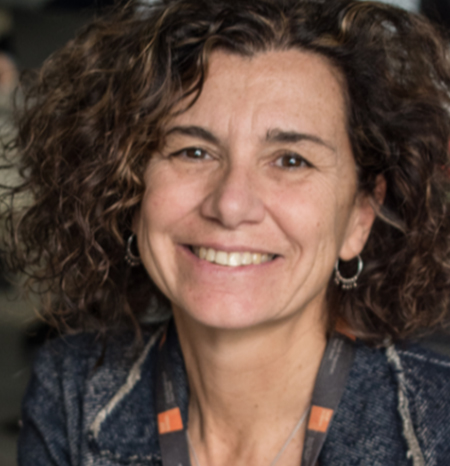
Professor @ Scuola Superiore Sant’Anna
Valentina Colla is Associate Professor of Metallurgy at Scuola Superiore Sant’Anna in Pisa, where She coordinates a team of 18 researchers named “ICT for Complex Industrial Systems and Processes”. Her research interests comprise modelling, simulation, monitoring, and optimization applications for the steel sector. She has been involved in 82 EU-funded projects, 14 as project coordinator. She is an active member of the European Steel Technology Platform, where She chairs the Focus Group “Smart Factory,” and She is vice-Chairman of the Focus Group “Circular Economy”.
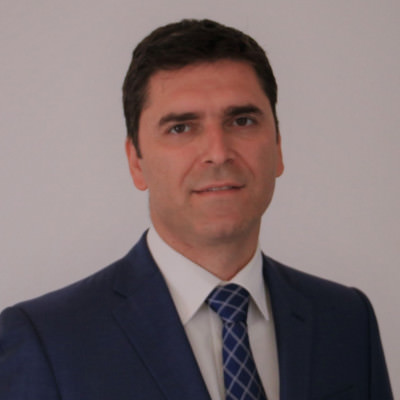
Associate Professor @ LMS, University of Patras
Prof. Sotiris Makris is a distinguished Mechanical Engineer and researcher at the Laboratory for Manufacturing Systems and Automation, University of Patras, Greece. He serves as the Head of Robotics, Automation, and Virtual Reality at the Laboratory for Manufacturing Systems and Automation (LMS). With over 25 years of experience, his expertise lies in advancing manufacturing systems through robotics, artificial intelligence, and virtual reality technologies.
Dr. Makris has contributed significantly to industrial human-robot collaboration and the integration of flexible manufacturing processes. He has coordinated multiple European-funded projects and published over 200 scientific articles, alongside books and editorials. Additionally, he has acted as the Executive Director of the Teaching Factory Competence Center, promoting Industry 4.0 training and innovation.
His work bridges academia and industry by developing cutting-edge solutions for flexible and energy-efficient manufacturing. He is an Associate Member of the International Academy of Production Engineering (CIRP) a member of IFAC and a member of IEEE, Robotics and Automation Society.
Cluster 3 will push forward digital technologies in key areas of interest to Europe and the Indo-Pacific region related to AI and trustworthy decision support, including trustworthy and human-centered AI, trustworthy data value lifecycles, as well as advanced computing technologies that enable the implementation of trustworthy AI systems. Cluster 3 will establish regular exchanges between leading experts from Europe and the four partner countries on policies, further developments of key digital technologies, and their implementation and commercialisation.
Thematic Working Groups
Artificial intelligence (AI) methods and technologies are a key driver of innovation across sectors and disciplines, industries and societal systems. AI systems are “software (and possibly also hardware) systems designed by humans that, given a complex goal, act in the physical or digital dimension by perceiving their environment through data acquisition, interpreting the collected structured or unstructured data, reasoning on the knowledge, or processing the information, derived from this data and deciding the best action(s) to take to achieve the given goal. As a scientific discipline, AI includes several approaches and techniques, such as machine learning (of which deep learning and reinforcement learning are specific examples), machine reasoning (which includes planning, scheduling, knowledge representation and reasoning, search, and optimization), and robotics (which includes control, perception, sensors and actuators, as well as the integration of all other techniques into cyber-physical systems).
The ambition of TWG 8 is to foster, leverage and support such AI solutions, which are human-centered, trustworthy and explainable, through strategic partnership of mutual interest and benefit between EU and IndoPacific area.
Experts
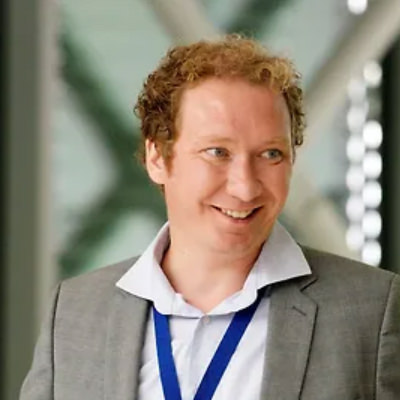
- Strategic Project Management @ Czech Technical University in Prague
- Interim Director @ International Neurodegenerative Disorders Research Center
V. Dočkal is co-founder and founding director and Executive Board member of the International Neurodegenerative Disorders Research Center (INDRC). He is the Project coordinator and Principal Investigator of the Center for Artificial Intelligence and Quantum Computing in System Brain Research (CLARA, EUR 43mil.) and former head of the Project Management Office (PMO) at CIIRC CTU in the years of 2013-2021. His expertise covers the agenda of the strategic R&D project management, planning and legal aspects. As the head of PMO he led the project team of the very first strategic Project of CIIRC CTU – the new R&D facility (EUR 50 mil.) and other ESIF, H2020, HE and strategic national projects thus significantly contributed to reaching additional EUR 80 mil. for capacity building of the CIIRC CTU in its start-up phase.
In the years of 2009-2012 he had been leading the Project Management Office at International Clinical Research Centre of the St. Anne’s University Hospital in Brno (ICRC) – large clinical R&D infrastructure funded by ESIF and the state funds (EUR 160mil.), reaching the rank of ICRC Vice-Chair in 2012.
V. Dočkal is experienced in R&D Project Management, soft skills, legal aspects and state-aid rules. Moreover, he received master degree at Faculty of Law, Masaryk University and the master degree at Historical Institute – Faculty of Arts, Masaryk University. In 2006 he received doctoral degree (Ph.D.) at Faculty of Social Studies, Masaryk University at Department of Political Science, with the thesis on the EU Regional Policy and its actors. During his Ph.D. studies at Masaryk university, V. Dočkal acted as the responsible team worker/ leader in the preparation and implementation of various national and international grants in the field of research, development and innovations.

- Chair of the Advisory and Programming Group @ A.SPIRE, Brussels
- Project Director @ ZEDO e.V. Dortmund
- In-house Consultant @ ENRICH GLOBAL
Received a Dipl.-Ing. degree in Electrical Engineering from Ruhr-Universität Bochum, Germany, 1978, and the Dr.-Ing. degree in Systems and Control 1981 from Universität Duisburg, Germany. Was employed as Group Leader at Fraunhofer IITB Karlsruhe, Germany 1986 – 1990 for Automation in the Process Industries, then appointed Full Professor at TU Dortmund for Process Dynamics and Operations in 1990. He served as VIce-Rector of TU Dortmund for Research and International Cooperation 2002-2006 and later as Commissioner of the Rector of TU Dortmund for International Relations.
Sebastian Engell received an ERC Advanced Investigator Award in 2011. He is a (co-)author of more than 650 publications that are listed in Scopus and received 3 best paper awards from leading international journals. He has ample experience in EU-funded projects as coordinator, scientific leader and workpackage leader and graduated more than 90 doctoral students at TU Dortmund.
He currently is the Chair of the Advisory and Programming Group of A.SPIRE, the representative of industry and research organizations within the EU PPP Processes4Planet and Project Director of several EU-funded projects related to circular economy and industrial / industrial-urban symbiosis at ZEDO e.V., Dortmund. He supports INPACE as an in-house consultant of Enrich Global, Sophia Antipolis, France.
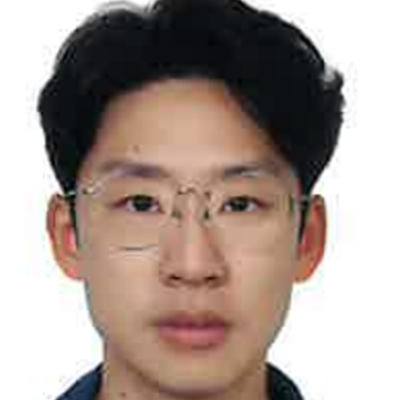
Team leader at the AI Trustworthy Center of TTA (Telecommunications Technology Association) of Korea
Joon Ho Kwak is Team Leader of AI trustworthiness policy & tech Team, Center for Trustworthy AI. His current job entails Research on AI systems safety, trustworthiness; Global Standardization (ISO/IEC JTC1/SC42); Certification on AI systems; Policy engagement to the Government; Technical Advisor of AISI.
Joon Ho Kwak has a strong background in SW testing/certification, Functional Safety, and Risk management process.
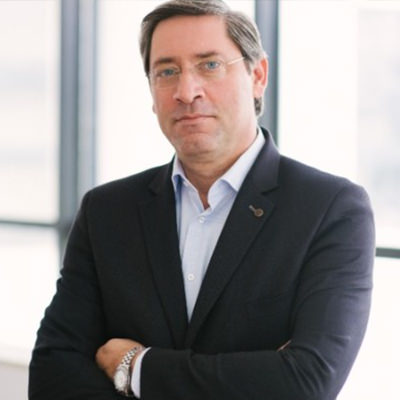
Director, Institute of Computer Science @ Foundation for Research and Technology – Hellas
Dimitris Plexousakis, Director of the Institute of Computer Science (ICS), FORTH is a Professor at the Department of Computer Science, University of Crete and Head of the Information Systems Laboratory of FORTH-ICS. He is also the Vice President of the Board of Directors of FORTH. He received his B.Sc. degree in Computer Science from the University of Crete in 1988 and M.Sc. and Ph.D degrees in Computer Science from the University of Toronto, Canada in 1990 and 1996 respectively. Prior to his appointment at the University of Crete he was an Assistant Professor at Kansas State University and the University of South Florida. During sabbatical leaves he was a visiting Professor at the Universities of Vienna, CNAM, Orsay and Paris-Est.
His research interests span the following areas: Knowledge Representation and Knowledge Base Design; formal knowledge representation models and query languages for the Semantic Web; Formal reasoning systems and applications of artificial intelligence in cognitive robotics, database systems and smart environments. He has published over 300 articles in international conferences and journals. According to Google Scholar, his work has received more than to 8,790 citations with an h-index of 45.
He possesses extensive experience in the scientific coordination of research projects at the national and European levels. He serves as the National Representative in ESFRI’s Strategic Group on Digital and the Chair of the National Sectoral Scientific Council on Computer and Information Sciences. He is a senior member of the Association for Computing Machinery and member Association for the Advancement of Artificial Intelligence and the Hellenic Society for Artificial Intelligence. He is also a member of the Board of Directors of the European Research Consortium on Informatics and Mathematics, chairing the Science Task Group. He is the Coordinator of the European Digital Innovation Hub “SmartHEALTH – from Precision Medicine to Innovative e-Health Services”.
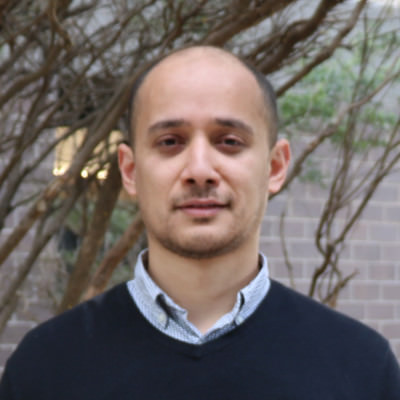
Associate Professor @ Kyoto University
Rafik Hadfi is an associate professor in the Graduate School of Informatics at Kyoto University in Japan. His research interests lie in the design, development, and application of multiagent systems to collective decision-making and social simulations. Rafik is a recipient of the ANAC-IJCAI Supply Chain Management League Competition Award (2021), IBM Award of Scientific Excellence (2020), JSAI Annual Conference Award (2020), IPSJ Best Paper Award (2016), IEEE Young Researcher Award (2014), and the AAAI Student Scholarship Award (2014). Rafik serves as a program committee member in leading AI conferences such as IJCAI, AAMAS, AAAI, and reviewer for Artificial Intelligence Review, Neural Computation, Autonomous Agents and Multi-Agent Systems, and Group Decision and Negotiation.
The vision of the European data strategy is an independent European digital market where participants have full control over the use of their data (digital and data sovereignty). That means a Europe in which information is shared freely across borders and sectors for the greater good of the entire European economy. The deployment of European Data Spaces in several strategic fields enable a level playing field of Europe’s data strategy. Data Spaces enable participants to share complex data securely and, hence, free up vast amounts of data for the creation of wide range of new and exciting products and services across borders and sectors.
In a globalized world anyone should be able to share data with anyone through secured and self-determined data exchange activities. Japan, Korea, Singapore and India are intriguing destinations for European Data Spaces activities outside Europe. Some already provide essential services for data spaces in their countries, e.g., Japan, however, they generate and store data using vastly different systems. Collaboration to promote and support global data spaces activities that expand business partnerships and enhance the capacity of global participants for innovation, whether they are individual, a corporation, a non-profit research institution or a government agency, are needed.
Experts
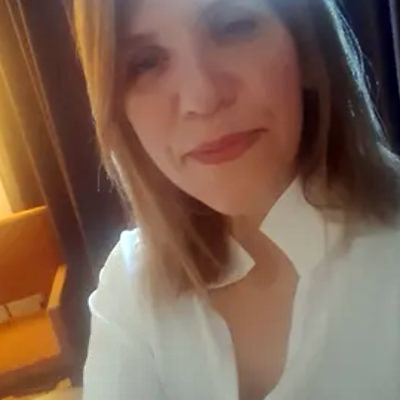
Project Manager @ ATC
I am a Project Manager at the ATC Innovation Lab, with over 15 years of professional experience in managing European and National projects within the Information Services domain. My research interests lie in Systems Analysis, eGovernment, eBusiness, and eCommerce applications. I have extensive experience in the analysis and implementation of IT systems and I am currently focused on business applications, user requirements capture, specifications analysis, and project management in European and National R&D initiatives.
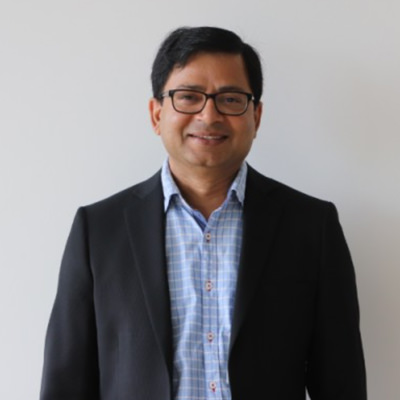
Professor @ IIIT Delhi
Mukesh Mohania joined IIIT Delhi as a Professor in November 2019. He served as a Dean (Innovation, Research and Development) from July 2020-June 2023 at IIIT Delhi. Prior to joining the IIITD, he has held senior technical roles in IBM Research in India and Australia. He served as a Chief Architect of IBM Watson Education. His innovations center on AI for Education, Information (structured and unstructured data) integration, and developing complex systems and applications in these areas, particularly in Education and Financial sectors. Over the course of his career, he has led a succession of successful projects that produced technology and products in use across the industry today, as well as influential and frequently cited technical work and patents. He holds 60+ granted patents and published 120+ technical papers in International Conferences and has widely participated in Industry forums. For these accomplishments, IBM recognized him as an “IBM Distinguished Engineer” (2013), “Master Inventor” (2009), “Member of IBM Academy of Technology” (2010), “Best of IBM” (2014). He has received several IBM corporate and research level awards, such as, “Excellence in People Management”, “Outstanding Innovation Award”, “Technical Accomplishment Award”, “Leadership By Doing”, and many more. He is a founding project director of DST sponsored Technology Innovation Hub (TIH) on ‘Cognitive Computing and Social Sensing’ at IIIT Delhi and received Rs100Cr (USD12M) for 2021-2025. He has held several visible positions, like ACM Distinguished Scientist (2011-), DASFAA Industrial Track co-chair (2024), VLDB Conference Organizing Chair (2016), DASFAA General- co-chair (2022), ER PC co-chair (2022), ACM India Vice-President (2015-17), ACM Distinguished Service Award Committee chair (2017-2018), Adjunct Professors/Industrial R&D board at various top universities in India and Australia, and many more, and has received IEEE Meritorious Service Award and ACM Outstanding Service Award. Currently, He is a member of the National Statistical Commission (Dec-2022 to Dec-2025).
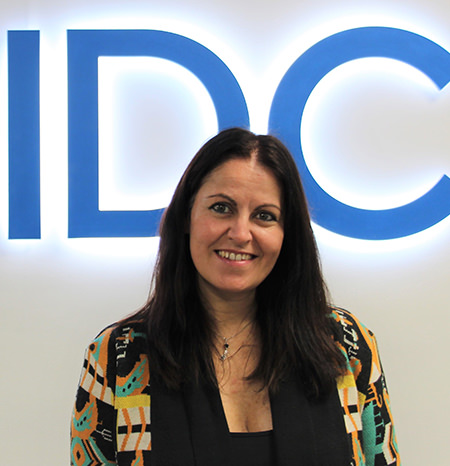
Consulting Director @ IDC
Nuria de Lama is Consulting Director at IDC, the leading Market Intelligence company. She studied Telecommunications Engineering at the Polytechnic University of Madrid. She has worked for 25 years in Innovation Programs at European level and has contributed to more than 40 R&I projects in areas like Digital Platforms, IoT, Big Data and Artificial Intelligence. From a sectorial point of view, she has knowledge on different industries. For almost 17 years she has played different positions at Atos, the leading IT company. Among them, she led a research unit on Semantic Technologies, Software and Service Engineering and later she worked as European Programs Manager, where she has represented Atos in major European Initiatives and coordinated Atos strategy in European Research projects. In that position she has been recognized as leader and contributor to EU initiatives like NESSI (European Technology Platform on Software and Services), the Future Internet Public Private Partnership (FIWARE program, leading to the creation of the FIWARE Foundation), Eureka programs like CELTIC and the Big Data Value Association, where she was founding member and held the position of Vice-Secretary General and member of the BoD. In November 2021 Nuria joined IDC4EU, the European Government Consulting department of IDC, where she capitalizes the extensive market data of IDC to help innovation projects to be impactful businesswise. While she covers a number of technology areas, her main focus is on themes associated to the Data Economy. Nuria works as expert and advisor for a number of IT projects and institutions like the European Commission.
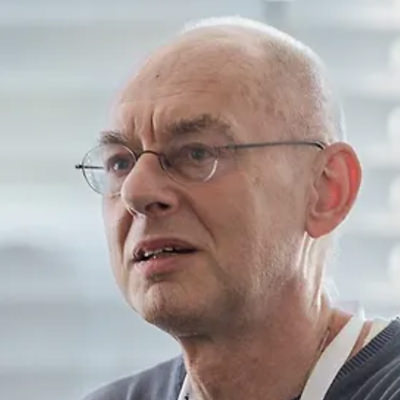
Professor @ Yrkeshögskolan Arcada
Roberto V. Zicari is an affiliated professor at the Yrkeshögskolan Arcada, Helsinki, Finland, and an adjunct professor at the Seoul National University, South Korea.
He is also Visiting Fellow at the Robert Schuman Centre for Advanced Studies at the European University Institute.
Roberto V. Zicari is leading a team of international experts who defined an assessment process for Trustworthy AI, called Z-Inspection®.
Previously he was professor of Database and Information Systems (DBIS) at the Goethe University Frankfurt, Germany, where he founded the Frankfurt Big Data Lab .
He is an internationally recognized expert in the field of Databases and Big Data. His interests also expand to Ethics and AI, Innovation and Entrepreneurship. He is the editor of the ODBMS.org web portal and of the ODBMS Industry Watch Blog. He was for several years a visiting professor with the Center for Entrepreneurship and Technology within the Department of Industrial Engineering and Operations Research at UC Berkeley (USA).

–
–
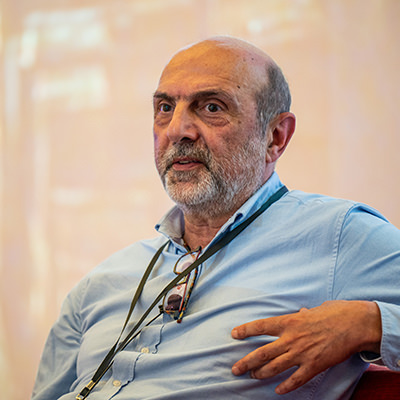
Director @ Athens Technology Centre SA
Dr. Antonis Ramfos is an independent IT Research and Innovation expert, operating in many European countries. Dr. Ramfos has an over 30 years’ experience in strategy, structure, management, promotion, and operation of the R&D&I activity in a multi-national corporate environment. Proven expertise in the conception, acquisition and implementation of R&D&I projects based on state-of-the-art ICT technologies, and the promotion and commercial exploitation of R&D results targeting a wide range of industries and business sectors.
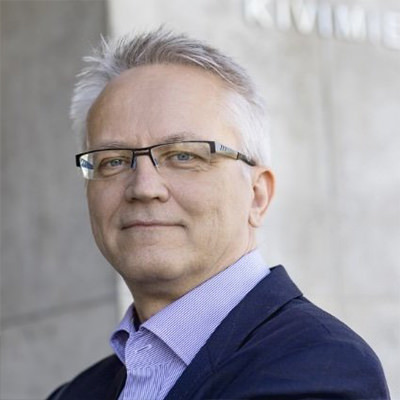
Dr. Tuomo Tuikka is lead of Data Space Solutions research at VTT
Technical Research Centre of Finland, and Associate Professor at University of Oulu.
His research focus on data space related topics, often referred as European Common
Data Spaces. Dr. Tuikka is involved in many European and national research and
innovation activities including big data, AI, and software and services. Especially now in
Data Spaces Support Centre, a European project for trusted and interoperable data
exchange. He is Data Space Task Force co-lead, and Board and Technical Board
member in Big Data Value Association, VTT contact point to Gaia-X AISBL, and
International Data Space Association Ambassador. He has both academic and software
industry background with business experience from Finland, Denmark, USA, and
Japan. Dr. Tuikka has PhD in Information Systems Science from 2002.
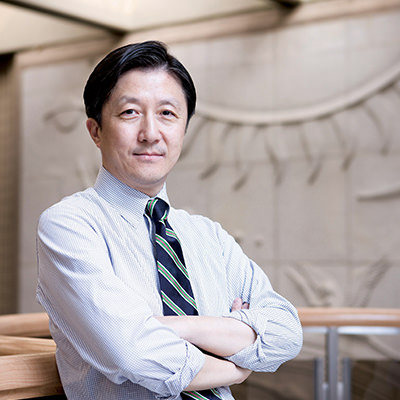
Visiting professor in the Graduate School of Engineering
Practice at Seoul National University, Seoul, Korea.
Dr. Jeongjoon Lee currently is a visiting professor in the Graduate School of Engineering
Practice at Seoul National University, Seoul, Korea. He received the B. S. and the M. S.
degrees in Electrical Engineering from Seoul National University, Seoul, Korea, in 1988 and
1990, respectively, and the Ph. D. degree in the School of Electrical and Computer
Engineering from Purdue University, Indiana, USA. Dr. Lee joined LS Electric (formerly LG
Industrial Systems) Co., Seoul, Korea in 1990, and his last position at LS Electric was CTO
in Automation CIC (Company In Company) in 2022.
He has been working for Korean government, especially in the area of Digital
Transformation, Smart Manufacturing, Smart Cities, Smart Grids, etc., and served as a
member of Presidential Special Committee on Smart Cities under the Fourth Industrial
Revolution Committee from 2017 to 2021, and currently is a member of Presidential
Committee on Digital Platform Government (DPG).
His expertise includes the international standardization activities. For example, he served as
Vice Chairman in Korean Standards Committee from 2016 to 2022, Board Member of
SMB(Standardization Management Board) at IEC(International Electrotechnical
Commission) from 2015 to 2017, and he was elected in 2024 and currently serves as a
Board Member of IEC Board(IB).
His current interest include dataspaces, DPP(Digital Product Passport), PCF(Product
Carbon Footprint) tracking, ESG DD(Due Diligence) in EU Product Rules.
High-performance computing TGW will discuss the problems we face in a very short time or even today. We want to open a forum for debate on the usage of high-performance computing sources in terms of sustainability, efficiency, and sharing. The energy consumption for computing is rapidly growing, and it will grow even faster as the new quantum computing techniques become more available, as well as the necessity for high-performance computing, data storage, and all techniques necessary for developing AI techniques. On the other hand, the world’s energy production is growing slower than the energy consumption for computing. The energy consumption problems and costs incurred for computing could limit high-performing computing development and usage. The problem is not only local but on a global scale. The aim is to find ways to ensure the sustainability of computing, prepare for the fast development of AI technologies from the point of view of carbon emissions trace, and find a way to share our computing resources.
Cluster 4 covers the enabling technologies for future chips targeting many electronic applications and societal challenges. A lot of innovations will be needed in the coming years to develop semiconductor technologies able to address high performance and/or low power reliable and sustainable systems, including novel functionalities and disruptive materials and device architectures. Therefore, Cluster 4 focuses on Advanced Computing, Advanced Functionalities and Ground-Breaking Technologies.
Thematic Working Groups
The TWG on advanced computing deals with some core technologies that we think are the most promising for many future applications in order to overcome the number of challenges we are facing for future ICs, in particular: High performance, Low/very low static and dynamic power consumption, Device scaling, Low variability, Affordable cost. Considering these challenges, the following nanodevices and technologies have been considered as very relevant for advanced computing, including logic and memories: FD (Fully Depleted) SOI (Silicon-On-Insulator) MOSFET for low power applications and low variability ; multi-gate devices for high performance and/or low power applications ; Nanowire and nanosheet FETs for high performance and low power applications and ultimate integration ; Charge-based and non-charge-based Resistive Memories or alternative charge-based Memories to replace charge-based memories using PCRAM (Phase Change RAM), RRAM (Resistive RAM using a nanofilament), MRAM (Magnetic RAM, especially STT/Spin Transfer Torque MRAM or SOT), or FeRAM or FeFET (using the polarization of a ferroelecric material) ; 3D integration for increasing device integration using 3D stacking.
Experts
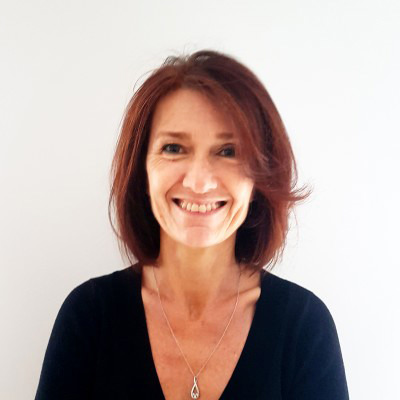
Head of EU Office @ SiNANO Institute
Received a Dipl.-Ing. degree in Electrical Engineering from Ruhr-Universität Bochum, Germany, 1978, and the Dr.-Ing. degree in Systems and Control 1981 from Universität Duisburg, Germany. Was employed as Group Leader at Fraunhofer IITB Karlsruhe, Germany 1986 – 1990 for Automation in the Process Industries, then appointed Full Professor at TU Dortmund for Process Dynamics and Operations in 1990. He served as VIce-Rector of TU Dortmund for Research and International Cooperation 2002-2006 and later as Commissioner of the Rector of TU Dortmund for International Relations.
Sebastian Engell received an ERC Advanced Investigator Award in 2011. He is a (co-)author of more than 650 publications that are listed in Scopus and received 3 best paper awards from leading international journals. He has ample experience in EU-funded projects as coordinator, scientific leader and workpackage leader and graduated more than 90 doctoral students at TU Dortmund.
He currently is the Chair of the Advisory and Programming Group of A.SPIRE, the representative of industry and research organizations within the EU PPP Processes4Planet and Project Director of several EU-funded projects related to circular economy and industrial / industrial-urban symbiosis at ZEDO e.V., Dortmund. He supports INPACE as an in-house consultant of Enrich Global, Sophia Antipolis, France.
The TWG dedicated to Advanced functionalities focus on the main functionalities added to logic and memories, for electronic systems in particular smart sensing, smart power, energy harvesting, flexible electronics, and heterogeneous integration of these technologies. In the sensors area, we cover many applications, especially healthcare, automotive, environment, agriculture and energy, including sensors for car internal system performance (Motion, Pressure and Position sensors), Advanced Driver Assistance System (Image, LiDAR and Infrared sensors), Environmental monitoring (Gas and Particulate Matter sensors), Physiological signal monitoring, Implantable sensors, Molecular diagnostics. The second domain is devoted to Power devices, which are based on silicon or wide bandgap semiconductors like GaN, SiC, which are poised to play an important role in future power electronics systems, for the following applications: Efficiently feeding-in wind and solar energy to the grids ; Stabilization of the power grids with increasing share of fluctuating renewable energy sources ; Highly efficient variable speed motor drives ; Energy efficient and low-emission mobility with hybrid and full electric vehicles ; Energy saving lighting technology ; Energy management of batteries. The third area deals with energy harvesting for autonomous systems. Targeting EH technologies with low fabrication cost, high efficiency, and without toxic/rare materials is the main challenge. Adding flexibility and/or transparency is also an increasing demand for compatibility with wearables applications. This field includes energy harvesting from Thermal, Mechanical, Photovoltaic, RF sources, micro-batteries, and power management circuits. The last domain covers flexible electronics, with very interesting properties such as light weight, low cost, stretchability, and wearability, especially suitable for the development of personalized wearable devices.
Experts
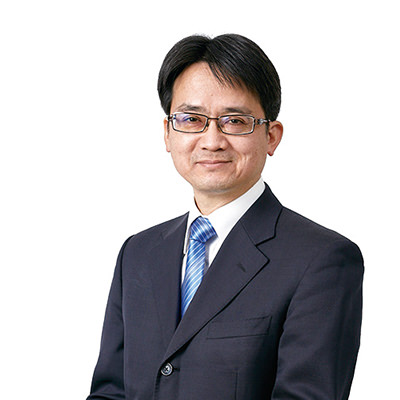
Professor at University of Tokyo
Prof. Ken Uchida received Ph.D. degrees in applied physics from the University of Tokyo. In 1995, he joined the Research and Development Center, Toshiba Corporation, Japan. In Toshiba, he studied device physics and carrier transport in nanoscale devices. In 2008, he moved to academia and worked for Tokyo Institute of Technology as an associate professor and Keio University as a professor. In 2018, he moved to The University of Tokyo, Tokyo, Japan, as a professor, where he has worked on low-energy sensors, device physics of cryo-CMOS devices for quantum computing, and advanced 3D FETs.

Head of EU Office @ SiNANO Institute
Received a Dipl.-Ing. degree in Electrical Engineering from Ruhr-Universität Bochum, Germany, 1978, and the Dr.-Ing. degree in Systems and Control 1981 from Universität Duisburg, Germany. Was employed as Group Leader at Fraunhofer IITB Karlsruhe, Germany 1986 – 1990 for Automation in the Process Industries, then appointed Full Professor at TU Dortmund for Process Dynamics and Operations in 1990. He served as VIce-Rector of TU Dortmund for Research and International Cooperation 2002-2006 and later as Commissioner of the Rector of TU Dortmund for International Relations.
Sebastian Engell received an ERC Advanced Investigator Award in 2011. He is a (co-)author of more than 650 publications that are listed in Scopus and received 3 best paper awards from leading international journals. He has ample experience in EU-funded projects as coordinator, scientific leader and workpackage leader and graduated more than 90 doctoral students at TU Dortmund.
He currently is the Chair of the Advisory and Programming Group of A.SPIRE, the representative of industry and research organizations within the EU PPP Processes4Planet and Project Director of several EU-funded projects related to circular economy and industrial / industrial-urban symbiosis at ZEDO e.V., Dortmund. He supports INPACE as an in-house consultant of Enrich Global, Sophia Antipolis, France.
The TWG devoted to Ground-breaking technologies covers neuromorphic computing, quantum computing, very low power technologies (Tunnel FET, FeFET, etc.), and alternative materials for Beyond-CMOS technologies (2D, 1D, OD, etc.). As dimensional scaling of CMOS will eventually approach fundamental limits, new information processing devices and microarchitectures for both existing and new functions have to be explored. This is driving interest in new devices for information processing and memory, new technologies for heterogeneous integration of multiple functions, and new paradigms for system architecture. Alternative device and computing architectures are of particular interest, especially for reducing power consumption, which is one of the main challenges for future electronic systems. Novel materials will also be necessary in this Beyond-CMOS field, in particular 2D materials are very promising.
Experts
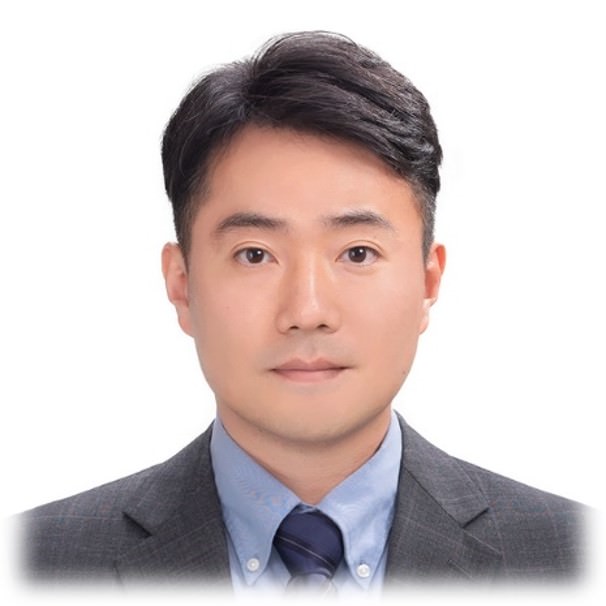
Associate professor at Ulsan National Institute of Science and Technology
Je-Hyung Kim received his Ph.D. in Physics at the Korea Advanced Institute of Science and Technology (KAIST), South Korea, in 2014. He was a postdoc researcher at the University of Maryland from 2014 to 2017. Since 2017, he has joined the Department of Physics at the Ulsan National Institute of Science and Technology (UNIST), South Korea, and is now an associate professor at UNIST. His group’s major research topics range from fundamental studies of quantum light-matter interactions with solid-state quantum emitters to the development of advanced quantum photonic/spin resources and their applications in quantum information technologies.

Head of EU Office @ SiNANO Institute
Received a Dipl.-Ing. degree in Electrical Engineering from Ruhr-Universität Bochum, Germany, 1978, and the Dr.-Ing. degree in Systems and Control 1981 from Universität Duisburg, Germany. Was employed as Group Leader at Fraunhofer IITB Karlsruhe, Germany 1986 – 1990 for Automation in the Process Industries, then appointed Full Professor at TU Dortmund for Process Dynamics and Operations in 1990. He served as VIce-Rector of TU Dortmund for Research and International Cooperation 2002-2006 and later as Commissioner of the Rector of TU Dortmund for International Relations.
Sebastian Engell received an ERC Advanced Investigator Award in 2011. He is a (co-)author of more than 650 publications that are listed in Scopus and received 3 best paper awards from leading international journals. He has ample experience in EU-funded projects as coordinator, scientific leader and workpackage leader and graduated more than 90 doctoral students at TU Dortmund.
He currently is the Chair of the Advisory and Programming Group of A.SPIRE, the representative of industry and research organizations within the EU PPP Processes4Planet and Project Director of several EU-funded projects related to circular economy and industrial / industrial-urban symbiosis at ZEDO e.V., Dortmund. He supports INPACE as an in-house consultant of Enrich Global, Sophia Antipolis, France.
This cluster is devoted to the digital technologies for the connectivity required in the future – future networks. We live already in a hyperconnected world, so similarly to the other clusters this is also a very dynamically evolving area with significant challenges, where co-operation and collaboration plays a critical role.
Thematic Working Groups
Beyond 5G and 6G are designating the upcoming, future generation of wireless mobile communication. They are the planned successor of the current 5G standard (ITU-T IMT-2020) and are currently being developed and standardised by 3GPP and will eventually form the ITU-T IMT-2030 standard.
Whilst 5G notably addressed three main application areas with enhanced capabilities – being Enhanced Mobile Broadband (eMBB), Ultra Reliable Low Latency Communications (uRLLC), and Massive Machine Type Communications (mMTC) – beyond 5G and 6G (or more precisely ITU-R, preparing the ground for IMT-2030) identifies three additional usage scenarios. These are Integrated Sensing and Communication; Integrated AI and Communication; and Ubiquitous Connectivity. At the same time eMBB becomes Immersive Communication, uRLLC becomes Hyper Reliable and Low Latency Communication and mMTC Massive Communication.
Experts
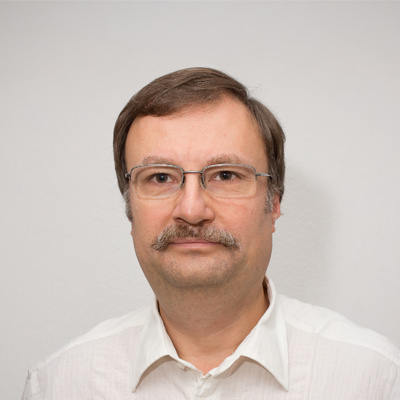
Programme manager @ Eurescom GmbH
Adam Kapovits has 34 years of professional experience in academic and industry research. He joined Eurescom, the leading organisation for managing collaborative R&D in telecommunications 24 years ago as programme manager, focusing first mainly on the networking layer. He has managed a large number of studies and projects on topics which are of concern to the Eurescom member community of European telecom network operators and the European telecom industry at large.
Adam has co-ordinated two European FP7 projects, project CHANGE and RERUM. More recently Adam co-ordinated the H2020 5G PPP project IoRL and currently he is the co-ordinator of the Horizon Europe SNS JU OPTI-6G project.
One of Adam’s main interest concerns the convergence of terrestrial and satellite communication in the 5G and 6G context. Adam has led a number studies contracted by the European Space Agency. He currently leads the ARTES SATis5, 5G METEORS, 5GEOSiS and 6G SmartSat studies.
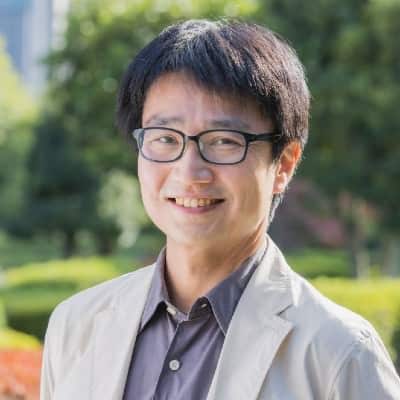
Director, Beyond 5G Design Initiative, NICT, Japan
Dr. Kentaro Ishizu received B.S., M.S. and Ph.D degrees in computer science and engineering from Kyushu university, respectively in 2001, 2003 and 2005. Since then, he has been working with National Institute of Information and Communications Technology (NICT) and dedicated to R&D on wireless communication systems focusing on heterogeneous networking, cognitive radio, TV white space system, and local 5G (private 5G). Prior to launching the 5G services in Japan, his team conducted Proof-of-Concept experiments and demonstrations with mobile operators and manufacturers. The research style is not limited to logical study and simulations, but also extended to its prototyping, field experiments, and international standardization such as IEEE802, ETSI and 3GPP. His current interests include Beyond 5G/6G architecture as an open service platform enabling cross-industry orchestration.
From April 2021, Dr. Ishizu is directing a newly launched Beyond 5G Design Initiative at NICT, where his team is responsible for R&D strategy on Beyond 5G/6G, establishment of international R&D activities, facilitation for academic-industry collaborations, and technical information dissemination including the Beyond 5G/6G white papers that NICT has been publishing since 2021.
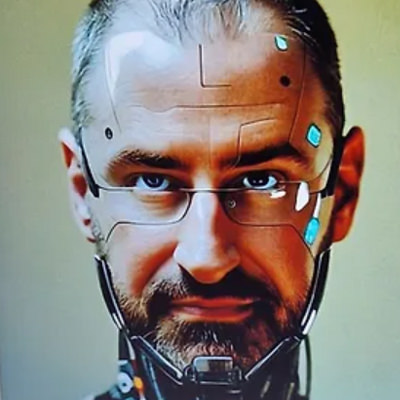
RUI L. AGUIAR (Senior Member, IEEE) was the Founder of the ATNOG Research Group, Advanced Telecommunication Research Group, Universidade de Aveiro. He is currently a Full Professor with Universidade de Aveiro. He is also co-coordinating a research line with Instituto de Telecomunicações, on the area of networks and services. He has been an Advisory for the Portuguese Secretaria de Estado das Comunicações and a member of the task force for 5G cybersecurity. He is a Chartered Engineer and a member of ACM. He has derved as the Portugal Chapter Chair for the IEEE Communications Society and has been serving as the Steering Board Chair for Networld Europe, the European ETP representing the telecommunications community, engaged
in the discussions of the future European research and development work program for telecommunications. As further community engagement, he has served as the Technical and General (Co)Chair for several conferences,most recently the General Co-Chair of the IEEE World Forum in IoT. He is a regular keynote speaker in the future of mobile communications and digital society, with dozens of talks across the whole world. He is an Associate Editor of Emerging Telecommunication Technologies (Wiley) and Wireless Networks.
(Springer)

–
–
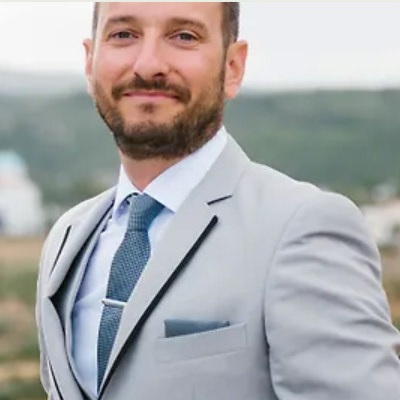
Senior Researcher / Project manager @ 6G Industry Association (6G-IA)
Mr. Konstantinos Trichias M.Sc. (male) received a Dipl.-Ing degree in Electrical & Computer Engineering from the University of Patras, Greece, in 2008 and his M.Sc. degree in Electrical/Telecommunications Engineering from the University of Twente, The Netherlands, in 2011. He specializes on next-generation heterogeneous wireless and mobile networks (B5G/6G), as well as the integration and smooth interoperability of these technologies with novel networking paradigms such as ITS/V2X and IoT, targeting the successful integration of multiple vertical industries (smart energy / cities / industry 4.0, automotive, etc.) into the B5G/6G ecosystem. He has participated in several international (incl. FP7/H2020/HE/CEF) R&I projects from multiple positions (Coordinator, Technical manager, WP leader) and has served as a 3GPP RAN1 & RAN2 delegate, with a portfolio of multiple patent applications and scientific publications. He is currently serving as a Senior Researcher / Project manager at the 6G Industry Association (6G-IA). His role includes the Coordination of CSA projects, the support of the 6G-IA community and Working Groups and the alignment with the SNS JU office on European Research & Innovation issues. Since October 2023, he is also serving as the chairman of the SNS JU Technology Board.
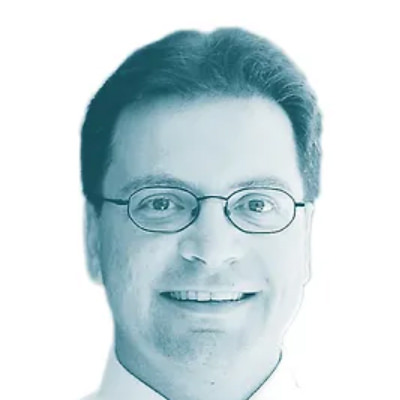
Anastasius Gavras has more than 30 years of professional experience in academic and industry research. He joined Eurescom, the leading organization for managing collaborative R&D in telecommunications, 25 years ago as programme manager, focusing on the areas of management of networks & systems, security and middleware. His current interests are large scale testbeds for beyond 5G and 6G experimentation. He is vice-chair of the SNS JU steering board and involved in several running projects. He is editor of several SNS JU and 6G-IA community white papers as well as contributor to the work of several work groups in the area of SNS/6G (e.g., Architecture, Vision, Reliable Software Networks, Test, Measurement and KPIs Validation…).
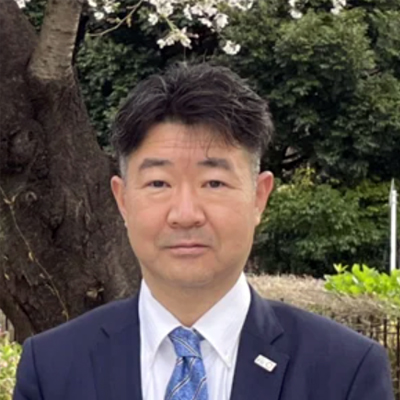
Professor in School of Engineering @ University of Tokyo
Akihiro Nakao received his B.S. and M.E. from the University of Tokyo and worked at IBM until 2005. After earning his Ph.D. from Princeton, he joined the University of Tokyo. Nakao is a professor as well as a special advisor to the president of the university and leads the Department of System Innovations in the School of Engineering. He also directs the Collaborative Research Institute for NGCI of the university. He is President of IEICE’s Communication Society, and Co-Chairperson of XGMF (XG Mobile Promotion Forum).
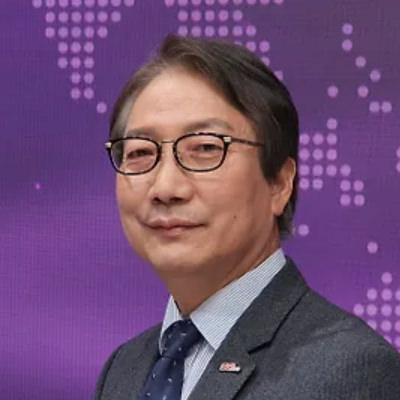
Professor at DanKook University in Korea
Dr. LEE, Hyeon Woo is a Professor at DanKook University in Korea, a TTA 5G/6G Standard Committee vice chair, and a 6G forum executive committee vice chair.
He served as a National R&D Program Director under Ministry of Knowledge Economy of Korea from 2009 until 2013. He was a head of Global Standard & Research Lab. of Samsung Electronics from 1984 until 2009.
He received BSEE from Seoul National University in 1985, MBA from Sogang University in 1989, ME and Ph.D degree at KAIST in 1994 and 2003 respectively.
He works on 5G/6G mobile communication, international standards, and R&D strategy planning. He is a member of KICS, IEEE and IEICE.
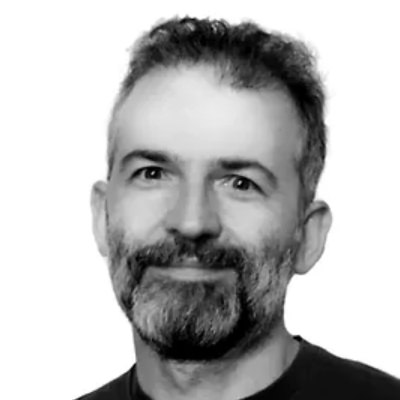
Programme Manager @ Eurescom GmbH
Alessandro Bassi is a seasoned expert in the field of the Internet of Things (IoT) with extensive experience spanning various roles and industries. He graduated in Computer Science from the University of Milan, focusing on artificial intelligence and software engineering. He has worked with large corporations like Hitachi and Ricoh, academic institutions such as the University of Tennessee and École Normale Supérieure, and has contributed to NGOs, startups, and small to medium enterprises.
Currently, he is a Program Manager at Eurescom GmbH, where he leads projects in telecommunications and ICT. Alex is also the President of IoTItaly, an organization promoting IoT adoption in Italy. He has played a significant role in shaping IoT research and policies in Europe, including involvement in the EU’s “IoT-A” project, which developed architectural frameworks for IoT systems. Additionally, he has served as an expert for ENISA, focusing on IoT-related cybersecurity risks.
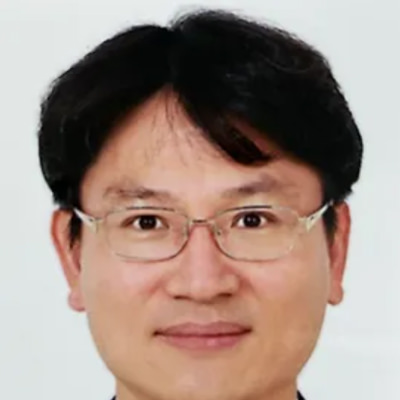
Director @ ETRI
Dr. Namseok Ko received the M.S. and Ph.D. degrees from KAIST, Korea, in 2000 and 2015, respectively. He is currently a Director leading the Mobile Core Network Research Section at Electronics and Telecommunication Research Institute (ETRI). He is also an associate professor at the Department of Information and Communication Engineering, University of Science and Technology (UST). He is serving as a Vice-Chair of SG11 and a Rapporteur of Q20 of SG13 in ITU-T. He is also serving as a Vice-Chair of the Technology Committee and the Chair of the Network Technology Work Group at 6G Forum, Korea. He has participated in various research and development projects including developments of 5G mobile core network technologies since he joined ETRI in 2000. Now he is leading several ongoing projects related to 6G network architecture. His research interests include 5G/6G mobile core network architecture and its enabling technologies, e.g., to support network programmability, the convergence of networking and computing, and non-terrestrial network.
The Internet of Trust can be defined as a digital ecosystem where users, devices, applications, and services can interact with confidence, ensuring that security, privacy, and reliability are integral components of every interaction. Trust in this context is built key principles, among others authentication, integrity, confidentiality, resilience and availability. The cybersecurity discipline in a broader scope is the practice of protecting systems, networks, and data from digital attacks. These attacks aim at accessing, changing, or destroying sensitive information, interrupting normal business processes, stealing identities, or extorting monetary value from users. Lately digital attacks have been used to disrupt digital infrastructures of nations and whole societies, in a warfare manner with far-reaching implications and potentially devastating consequences. Effective cybersecurity measures are designed to counter these threats, ensuring the safety and integrity of digital assets.
In the realm of cybersecurity, ENISA is the most important European agency, having published guidelines and reports, such as the yearly ENISA threat landscape reports, foresight cybersecurity threats for 2030, cybersecurity resilience act requirements, various reports on 5G security as well as the EU risk management toolbox, Furthermore ENISA considers the landscape around AI, and has investigated the use of AI in cybersecurity, the threats arising from AI-powered attacks, as well as the cybersecurity of AI-based systems against adversarial attacks, data poisoning and other new forms of attacks. Other relevant organisations are the EC that has developed the EU Cybersecurity strategy in 2020 and the EU that enacted the Cybersecurity Act (EU 881 / 2019) as a European regulation that introduces a harmonised European system for the cybersecurity certification of ICT products, services and processes. Finally on the level of technology standards, ETSI is hosting technical committees on cybersecurity (TC CYBER), as well as groups working on digital signatures, quantum safe primitives, quantum key distribution, cryptographic algorithms, privacy and many more related technical areas.
The progress in quantum computing is inducing a severe risk to classical cryptography by leveraging properties and principles of quantum mechanics. Due to is sheer computational power quantum computing poses a significant threat to most current cryptographic systems. A new generation of so-called post-quantum cryptographic (PQC) algorithms aim to resist quantum computing-based attacks. Research and innovation work is in progress to increase the maturity of PQC algorithms, tools for large-scale implementation and deployment of PQC algorithms, as well as a secure and efficient ways for transition from pre- to post-quantum encryption. The most advanced recommendations concerning best practices are currently published by the US National Institute of Standards and Technology (NIST). ENISA has published a study providing an overview of the current state of play on the standardisation process of PQC.
Experts

Programme manager @ Eurescom GmbH
Adam Kapovits has 34 years of professional experience in academic and industry research. He joined Eurescom, the leading organisation for managing collaborative R&D in telecommunications 24 years ago as programme manager, focusing first mainly on the networking layer. He has managed a large number of studies and projects on topics which are of concern to the Eurescom member community of European telecom network operators and the European telecom industry at large.
Adam has co-ordinated two European FP7 projects, project CHANGE and RERUM. More recently Adam co-ordinated the H2020 5G PPP project IoRL and currently he is the co-ordinator of the Horizon Europe SNS JU OPTI-6G project.
One of Adam’s main interest concerns the convergence of terrestrial and satellite communication in the 5G and 6G context. Adam has led a number studies contracted by the European Space Agency. He currently leads the ARTES SATis5, 5G METEORS, 5GEOSiS and 6G SmartSat studies.

Senior Innovation Consultant @ Martel Innovate
During my career, I learned how to independently approach and manage complex problems in different contexts: from startups to large companies, from academia to research institutes. I have a large experience in managing multicultural teams with heterogeneous backgrounds (researchers, engineers, designers, managers). I have an innate talent for communication: writing grant proposals or presenting research results. I have a technical but also a commercial view on products and projects and I can take decisions based on limited information or short time.
I am good at: mediate & negotiate, empathise, motivate and being persistent.
I do like: new challenges, being independent, creating and networking
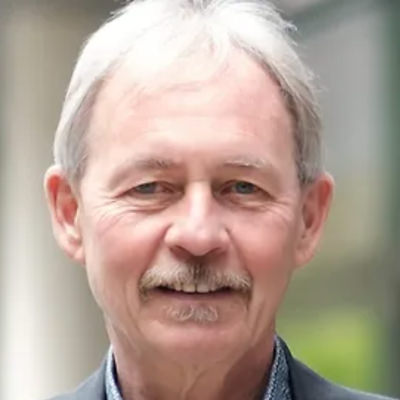
Chair of IT-Security at the University of Passau
Joachim Posegga holds the Chair of IT-Security at the University of Passau since April 2008. Before coming to Passau he was appointed Professor at the University of Hamburg, where he founded the “Security in Distributed Systems (SVS)” Group in 2003. Before joining academia he was leading the Security Research Program at SAP Corporate Research; from 1995-2000 he worked on security at Deutsche Telekom Research in Darmstadt. He also had an early “academic ife” at the Universities of Karlsruhe, Edinburgh and Kaiserslautern.

Anastasius Gavras has more than 30 years of professional experience in academic and industry research. He joined Eurescom, the leading organization for managing collaborative R&D in telecommunications, 25 years ago as programme manager, focusing on the areas of management of networks & systems, security and middleware. His current interests are large scale testbeds for beyond 5G and 6G experimentation. He is vice-chair of the SNS JU steering board and involved in several running projects. He is editor of several SNS JU and 6G-IA community white papers as well as contributor to the work of several work groups in the area of SNS/6G (e.g., Architecture, Vision, Reliable Software Networks, Test, Measurement and KPIs Validation…).
TWG16 is centered around the current convergence among the formerly separated Cloud, Edge and IoT domains. Cloud and Edge computing are essential technologies in a computing continuum to ensure data is managed more efficiently – closer to the originating source rather than transmitting raw data to remote data centres; moreover, improvements in the IoT segment can reduce communication and storage costs, energy consumption and yield benefits for citizens and businesses alike, thanks for example to the integration of AI and Machine Learning. Europe acknowledges the importance of this convergence, which can open up new opportunities but also present challenges, and in the last years has promoted and supported several initiatives in that direction: 1) the creation of the EUCloudedgeIoT.eu initiative which tries to help business users, industrial associations, tech providers and tech developers, research and innovation organisations, and policymakers access the benefits of Cloud Edge IoT convergence enhancing supply-demand dialogue and collaboration; 2) the creation of an Important Project of Common European Interest on the next generation cloud infrastructure services (IPCEI-CIS), with the aim of fostering a multi-provider cloud edge continuum in Europe, that can create an open environment where data is processed based on a network of interconnected clouds and edges; 3) forming the European Alliance for industrial Data, Edge and Cloud, among Member States representatives and experts from the industry to improve development and deployment of next generation edge and cloud technologies. In TWG16 EU experts in Cloud Edge IoT already involved in these EU initiatives will engage and interact with their counterparts in the Indo-Pacific region (specifically, Japan, Republic of Korea, India and Singapore) to identify common priorities and approaches towards the convergence of Cloud Edge and IoT but also to understand and assess the existing differences to derive insights and lessons to be learned.
Experts

Senior Innovation Consultant @ Martel Innovate
During my career, I learned how to independently approach and manage complex problems in different contexts: from startups to large companies, from academia to research institutes. I have a large experience in managing multicultural teams with heterogeneous backgrounds (researchers, engineers, designers, managers). I have an innate talent for communication: writing grant proposals or presenting research results. I have a technical but also a commercial view on products and projects and I can take decisions based on limited information or short time.
I am good at: mediate & negotiate, empathise, motivate and being persistent.
I do like: new challenges, being independent, creating and networking

Programme manager @ Eurescom GmbH
Adam Kapovits has 34 years of professional experience in academic and industry research. He joined Eurescom, the leading organisation for managing collaborative R&D in telecommunications 24 years ago as programme manager, focusing first mainly on the networking layer. He has managed a large number of studies and projects on topics which are of concern to the Eurescom member community of European telecom network operators and the European telecom industry at large.
Adam has co-ordinated two European FP7 projects, project CHANGE and RERUM. More recently Adam co-ordinated the H2020 5G PPP project IoRL and currently he is the co-ordinator of the Horizon Europe SNS JU OPTI-6G project.
One of Adam’s main interest concerns the convergence of terrestrial and satellite communication in the 5G and 6G context. Adam has led a number studies contracted by the European Space Agency. He currently leads the ARTES SATis5, 5G METEORS, 5GEOSiS and 6G SmartSat studies.
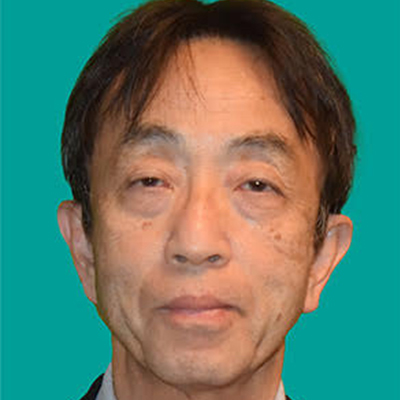
Waseda University
Hidenori Nakazato received his B. Engineering degree in electronics and telecommunications from Waseda University in 1982 and his MS and Ph.D. degrees in computer science from University of Illinois at Urbana-Champaign in 1989 and 1993, respectively. He has experience in industry for more than 15 years. Since 2000, he has been a faculty member at Waseda University, Japan. His research interest includes distributed systems, converging networking and computing, network protocols and algorithms, and their performance issues. He served as IEEE Communications Society Tokyo Joint Chapter Chair from 2017 to 2018, the Chair of IEICE Communications Society Editorial Board from 2014 to 2015, the member of IEEE Region 10 Executive Committee from 2009 to 2016 as well as technical chairs of several international conferences
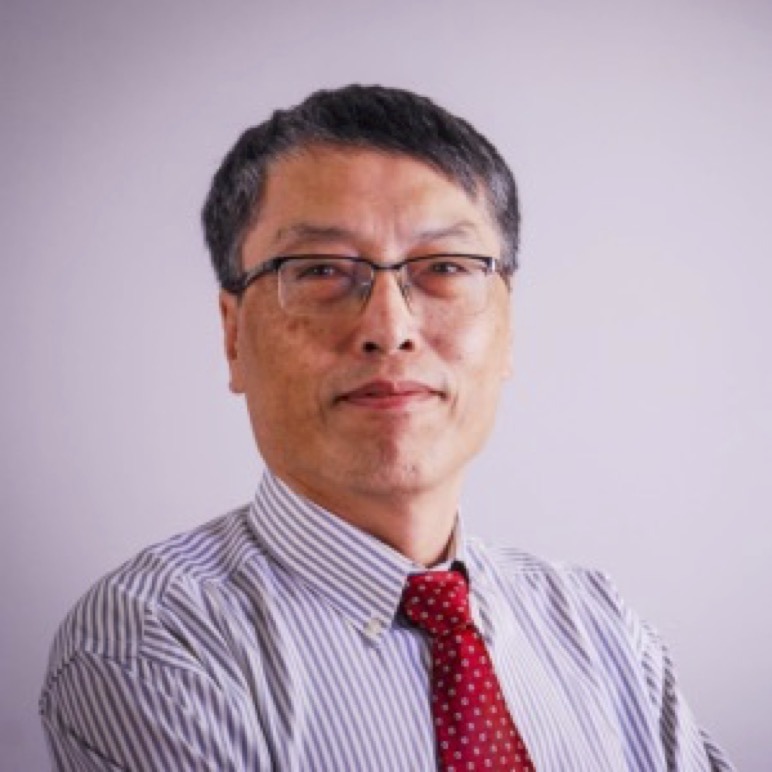
Executive board, Trialog, France
Co-founder of Trialog, he was CTO until 2018, and CEO until 2024, Antonio is now member of the executive board, focusing on strategy, innovation and knowledge management. He has been active since 2015 on standardisation as well as on standardisation strategy. Antonio has initiated the development of more than twenty standards on architecture, interoperability, conformity in domains such as the internet of things, digital twins, security and privacy or artificial intelligence. Antonio graduated from Harvard university and École Centrale de Paris.
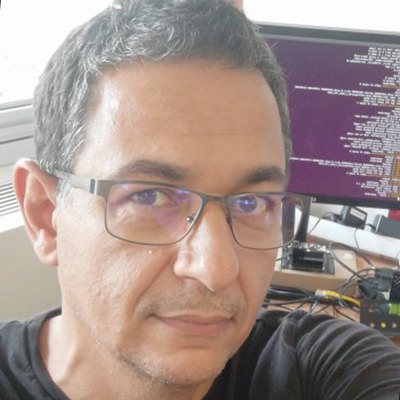
Gilles Orazi has 25 years of experience in the software development sector. He first worked 4 years in academic research in experimental particle physics where he contributed to various publications, to the development of scientific instrumentation and to the analysis of the data of big experiments. He then spent 7 years as a senior software developer in a multinational company specialized in instrumentation for analytical chemistry where he was responsible for the computational and data management software modules. He also worked in the software industry as a developer and project manager for 12 years, serving various large accounts on a variety of projects ranging from satellite simulators to reservation systems for travel agents. He joined EGM in 2019, where he is currently responsible for the engineering department developing the EdgeSpot platform as a building block for EGM’s commercial offering. He also contributes to various research projects (ASTRAL, LOTUS, SEDIMARK, ScaleAgData) and designs IoT solutions for the customers.
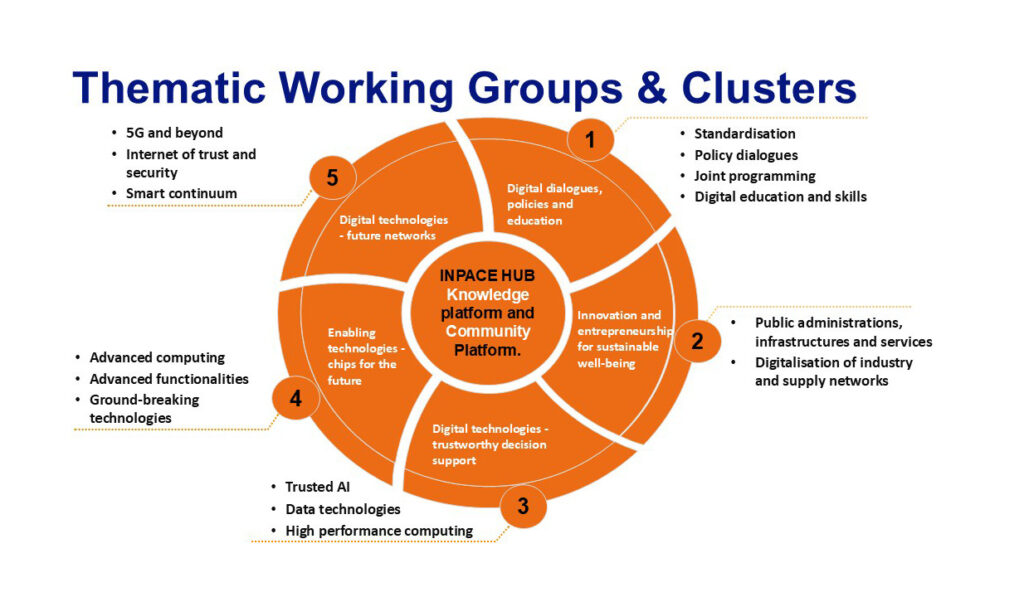
| Clusters | Thematic Working Groups |
|---|---|
| 1. Digital Dialogues, Policies and Education | 1. Standardisation 2. Regulation, legislation, policy 3. Joint (bidirectional) Programming 4. Digital education and skills |
| 2. Innovation and Entrepreneurship for Sustainable Well-Being | 5. Smart cities and communities 6. Digitalisation for sustainable ecosystems 7. Digitalisation of industry, infrastructures and services |
| 3. Digital Technologies – Trustworthy Decision Support | 8. Trusted AI 9. Data technologies 10. High performance computing |
| 4. Enabling technologies – chips for the future | 11. Advanced computing 12. Advanced functionalities 13. Ground-breaking technologies |
| 5. Digital technologies – Future network | 14. 5G and beyond 15. Internet of trust and security 16. Cloud, Edge, IoT |
Thematic
Working Groups
The INPACE Hub operates as an integrated eco-system structured around 3 Pillars, 5 Clusters, and 16 Thematic Working Groups (TWGs).
Co-led by a European and an Asian INPACE partner organisation, each TWG addresses key focus areas in digital technology, leading to strategic outputs, including policy briefs, panorama reports, and country-specific analyses based on comprehensive desk research and surveys. The Hub fosters collaboration both within and across TWGs.
Cluster 1 aims to serve as a bridge between the TWGs and other clusters and the policy-making level. The work of its TWGs cuts across all technical topics, focusing on the overarching institutional, legal, regulatory and educational tools needed for the implementation of the EU’s Digital Partnerships in the Indo-Pacific.
Thematic Working Groups
The TWG 1 is a transversal working group dealing with standardisation activities. Development of international standards is a long-lasting activity whose timespan usually goes beyond the one of research projects. It has to be managed as a transversal activity, encouraging projects to make use of existing standards while being provided with effective means to contribute whenever relevant.
There already exist a number of initiatives involving EU Standard Development Organisations (SDO) (ETSI/CEN/CENELEC), Asia-pacific one (e.g. TTA in South Korea, ARIB in Japan, BIS in India and initiatives under the Smart Nation program in Singapore) at global level through SDOs (e.g. ITU-T, ISO) and fora (e.g. oneM2M).
The TWG acts as a facilitator between the thematic TWGs 5-16 and relevant standardisation bodies to identify priorities across the involved countries and support their implementation.
Experts

Prof. JaeSeung Song is a full professor in the Department of Computer & Information Security Sejong University. He holds the position of Technical Plenary Vice Chair of the oneM2M global IoT standards initiative. He is also a visiting professor in the Department of Electrical and Computer Engineering, University of British Columbia (UBC) since 2019. Prior to his current position, he worked for NEC Europe Ltd. and LG Electronics in various positions. He received a Ph.D. at Imperial College London in the Department of Computing, United Kingdom. He holds B.S. and M.S. degrees in computer science from Sogang University. His research interests span the areas of beyond 5G and 6G, AI/ML enabled network systems, software engineering, networked systems and security, with focus on the design and engineering of reliable and intelligent IoT/M2M platforms.

CEO @ EGM
Dr Franck Le Gall (male), is CEO at EGM, an innovative SME focused on integration and validation of emerging technologies. He is driving company development to deploy data technologies over vertical markets (water, agriculture, smart territories, environment, etc.). He involves himself in standardisation area including ETSI where he is chair of the ETSI ISG-CIM working group on NGSI-LD. He is also elected member of the FIWARE Technical Steering Committee (TSC) as well as the joint ETSI-FIWARE Foundation working group on Digital Twins. Finally, he co-chair the Intelligent Smart System (I2S) working group of the ICT4Water European research cluster and got elected as chairman of the FIWARE water domain committee. He continuously contributes and drives several projects for public and private customers.

Since 2012, Mr. Dinesh Sharma is associated with EUROPEAN STANDARDISATION PROJECT, SESEI as Director – Standards and Public Policy. In this role, Mr. Sharma acts as the focal point in India representing European Standards Organizations (ETSI, CEN, CENELEC), European Commission (EC) and European Free Trade Association (EFTA). Mr Sharma’s current role as SESEI focuses around various sectors, topics falling under the domain of Digitalisation, Green/Clean Energy and other topics of mutual interest to India and EU.
Prior to this, Mr. Sharma worked with Ericsson for 15 years, with last profile as “Director – Regulatory Affairs & Industry Relation”. Mr. Sharma began his career in Technical Customer Support back in 1992 and has over 32 years of industry experience both in India and abroad in various profiles.
Mr. Sharma holds a bachelor’s degree in Electronics, and highest honors in Business Management from Stratford Institute, USA, and a SUN Solaris certification.

Principal Standardization Engineer @ NEC Laboratories Europe
Dr. Martin Bauer is a Principal Standardization Engineer in the Data Ecosystems and Standards group at the NEC Laboratories Europe (NLE) in Heidelberg, Germany. He studied Computer Science at the University of Stuttgart and the University of Oregon and received his doctorate degree from the University of Stuttgart, Germany, in 2007. In 2005 he joined the NEC Laboratories Europe (NLE), where he has been working on context and IoT related research projects as well as standardization activities in the same areas. He is currently working on data space and digital twin related activities and is active in standardization. In particular, he is driving the standardization of NGSI-LD, the core FIWARE API, in ETSI ISG CIM and is a vice-chair of the group. He is active in FIWARE and is a member and vice-chair of the FIWARE Technical Steering Committee. In addition, he is active in the data space area.

The role of the TWG 2 is to look at the legal, institutional and policy aspects relevant to the implementation of the EU’s Digital Partnership Agreements (DPAs) with Japan, the ROK and Singapore, and the TTC with India. Expert input is based on the analysis of relevant strategic documents in the EU and each of the regional countries, including national strategies and action plans related to security and defence (cyber security, EDT, AI, etc.), economic security, digital transformation and governance of new technologies. In cooperation with national experts, the TWG aims to a) map the legal and institutional environment in each of the target countries, b) identify the key players/ actors/ agencies, and c) identify enablers and challenges for advancing cooperation with the EU. In concrete terms, this involves desk research, in combination with input from webinars and in-person seminars including experts and policy practitioners from the EU and the target countries. The findings will be published in the form of Policy Briefs (1 per partner country), providing a condensed overview of the rationale, stakes, and challenges of each DPAs for the policy community and interested public. Within the INPACE HUB, involved European and regional policy experts and practitioners will also gain a networking opportunity enabling them to communicate directly and inject content on existing and future policies.
Experts

- Chair of the Advisory and Programming Group @ A.SPIRE, Brussels
- Project Director @ ZEDO e.V. Dortmund
- In-house Consultant @ ENRICH GLOBAL
Received a Dipl.-Ing. degree in Electrical Engineering from Ruhr-Universität Bochum, Germany, 1978, and the Dr.-Ing. degree in Systems and Control 1981 from Universität Duisburg, Germany. Was employed as Group Leader at Fraunhofer IITB Karlsruhe, Germany 1986 – 1990 for Automation in the Process Industries, then appointed Full Professor at TU Dortmund for Process Dynamics and Operations in 1990. He served as VIce-Rector of TU Dortmund for Research and International Cooperation 2002-2006 and later as Commissioner of the Rector of TU Dortmund for International Relations.
Sebastian Engell received an ERC Advanced Investigator Award in 2011. He is a (co-)author of more than 650 publications that are listed in Scopus and received 3 best paper awards from leading international journals. He has ample experience in EU-funded projects as coordinator, scientific leader and workpackage leader and graduated more than 90 doctoral students at TU Dortmund.
He currently is the Chair of the Advisory and Programming Group of A.SPIRE, the representative of industry and research organizations within the EU PPP Processes4Planet and Project Director of several EU-funded projects related to circular economy and industrial / industrial-urban symbiosis at ZEDO e.V., Dortmund. He supports INPACE as an in-house consultant of Enrich Global, Sophia Antipolis, France.

Dr Raluca Csernatoni is a research fellow working on European security and new technologies like Artificial Intelligence (AI) at Carnegie Europe in Brussels, Belgium. At Carnegie, she is a team leader and senior expert on new technologies for the ‘EU Cyber Diplomacy Initiative – EU Cyber Direct’ (EUCD) project, and leads Carnegie Europe’s research project on ‘The EU’s Techno-Politics of AI’ supported by the McGovern AI Grant. Csernatoni is currently also a professor on European security and defence focusing on emerging and disruptive technologies at the Brussels School of Governance (BSoG) and its Centre for Security, Diplomacy and Strategy (CSDS), Vrije Universiteit Brussel (VUB), Belgium. At CSDS, she is a senior research expert on digital technologies in the context of the EU-funded project, ‘Indo-Pacific-European Hub for Digital Partnerships: Trusted Digital Technologies for Sustainable Well-Being – INPACE’. Additionally, Csernatoni is a visiting professor of European security and high-tech warfare with the Department of International Relations of Central European University (CEU) in Vienna, Austria.

Director, Global Coordination Division, JPCERT, Senior researcher,
Keio Research Institute
Dr Koichiro Komiyama is the Director of the Global Coordination Division at the Coordination Centre of the Japanese Computer Emergency Response Team (JPCERT/CC). He has also been been a visiting scholar at Keio University’s Global Research Institute (KGRI) since 2016, and the Deputy Chair of the Research Advisory Group at the Global Commission on the Stability of Cyberspace (GCSC) since 2017. He holds a Bachelor’s degree in Business Administration from Aoyama Gakuin University, and a PhD from Keio University Graduate School of Media and Governance. His research interests include phishing, insider threats, and targeted attacks.

Eva Pejsova holds the Japan Chair at the Centre for Security, Diplomacy and Strategy (CSDS) of the Brussels School of Governance (BSoG). Until 2019, Dr Pejsova was Senior Analyst for Asia at the European Union Institute for Security Studies (EUISS), the EU’s official agency for foreign and security policy research and analysis. She obtained her PhD in Strategic Studies from the S. Rajaratnam School of International Studies (RSIS) in Singapore and has previously worked with the Czech Ministry of Foreign Affairs, the French Prime Minister’s Office, the OECD, and the Asia-Europe Foundation (ASEF). Dr Pejsova regularly lectures at SciencesPo (Paris School of International Affairs) in Paris, the Geneva Centre for Security Studies (GCSP), as well as briefs the Members of the European Parliament. Her research focuses on Indo-Pacific security matters, notably in the field of maritime security, the EU’s engagement in the Indo-Pacific, EU – Japan relations, and Japan’s foreign and security policy.

Paula Cantero Dieguez is Head of Projects at the Centre for Security, Diplomacy and Strategy (CSDS). As a research hub at the Brussels School of Governance of Vrije Universiteit Brussel (VUB), CSDS seeks to establish comprehensive theoretical and policy coverage of strategic competition and its impact on Europe, whilst paying particular attention to the Indo-Pacific region. Paula manages the project acquisition and implementation of various CSDS programmes, including the Korea Chair and Japan Chair.
Paula obtained a M.A. in International Relations from Yonsei University Graduate School of International Studies and a B.A. in Japanese Studies from Ghent University with great distinction. From 2013 to 2017, she was awarded the Korean Government Scholarship Program (GKS) and lived in Seoul completing a Korean language training and her study. She spent six months in Kanazawa, Japan, for an academic exchange. Paula previously worked at the European External Action Service, European Delegation to the Republic for Korea, in the Political, Press & Information Section.

Distinguished Professor @ Brussels School of Governance, VUB
Distinguished Professor at the Center for Security, Diplomacy and Strategy, Brussels School of Governance. He is also adjunct Professor at Libera Università Internazionale degli Studi Sociali (LUIIS) Rome, Webster University Vienna, University of Innsbruck. He held guest professorships at Ritsumeikan University-Kyoto, Asia Pacific University-Beppu, Kobe University, Keio University. Among various fellowships & senior advisor positions to note: Geneva Centre for Security Policy, Austrian Institute for European and Security Policy, Vienna Institute for International Economic Studies, Austrian Society for European Policy, Center for Asia Pacific Strategy-Washington. He is a regular speaker at international conferences.
Education: University of Innsbruck: 1978 doctor juris; 2005 Habilitation in international politics (PhD equivalent); Diplomas in international relations from Johns Hopkins University-Bologna Centre; Graduate Institute for International Studies, Geneva.
Diplomatic career (ret): Ambassador of the European Union to the Republic of Korea (2017-2020); Switzerland & Liechtenstein (2007-2011), Deputy Head of Mission of the Delegation of the EU to Japan, Asia-Europe Meeting (ASEM) Counsellor. Minister-Counsellor at the Mission of Austria to the EU and to GATT; panellist WTO dispute settlement; Co-chair trade of the OECD Trade and Environment Experts Group; Austrian Deputy Trade Commissioner for Western Africa out of Abidjan/Côte d’Ivoire, and Japan.
Focus of research, publications, teaching: EU foreign and security policy with special attention to Northeast Asia (Japan, Korean Peninsula) and the Indo-Pacific; cyber security, intersection geopolitics and geoeconomics, economic security. About 200 related publications – monographs, articles, policy papers and reviews. Founding editor of the CSDS Policy Briefs.
Special honours: Order of Merit, Silver with Star, Republic of Austria (2019). Honorary Citizen of the Metropolitan City Seoul (2020).

–
–
The Thematic Working Group on Joint Programming explores opportunities for joint calls for research and innovation projects between the Indo-Pacific Partner Countries and the European Union. These may be bilateral or multilateral calls. It will also discuss the mechanisms of funding and the needs and potential for alignment. The work will build upon the analysis and comparison of the funding landscape in digital technologies and their applications in the partner countries and in Europe.
Experts

- Chair of the Advisory and Programming Group @ A.SPIRE, Brussels
- Project Director @ ZEDO e.V. Dortmund
- In-house Consultant @ ENRICH GLOBAL
Received a Dipl.-Ing. degree in Electrical Engineering from Ruhr-Universität Bochum, Germany, 1978, and the Dr.-Ing. degree in Systems and Control 1981 from Universität Duisburg, Germany. Was employed as Group Leader at Fraunhofer IITB Karlsruhe, Germany 1986 – 1990 for Automation in the Process Industries, then appointed Full Professor at TU Dortmund for Process Dynamics and Operations in 1990. He served as VIce-Rector of TU Dortmund for Research and International Cooperation 2002-2006 and later as Commissioner of the Rector of TU Dortmund for International Relations.
Sebastian Engell received an ERC Advanced Investigator Award in 2011. He is a (co-)author of more than 650 publications that are listed in Scopus and received 3 best paper awards from leading international journals. He has ample experience in EU-funded projects as coordinator, scientific leader and workpackage leader and graduated more than 90 doctoral students at TU Dortmund.
He currently is the Chair of the Advisory and Programming Group of A.SPIRE, the representative of industry and research organizations within the EU PPP Processes4Planet and Project Director of several EU-funded projects related to circular economy and industrial / industrial-urban symbiosis at ZEDO e.V., Dortmund. He supports INPACE as an in-house consultant of Enrich Global, Sophia Antipolis, France.
The Thematic Working Group on Digital Education and skills aims to address the rapidly evolving landscape of digital education. The group’s focus is on the most recent and upcoming trends, such as AI-driven learning, virtual and augmented reality in education, and the use of data analytics in learning. Additionally, the group emphasizes promoting digital literacy to keep pace with technological advancements and bolstering cybersecurity , as well as the importance of upskilling and reskilling to ensure that both teachers and learners are continuously updated with the latest digital competencies to effectively and safely utilize new digital tools in education and at work. Through virtual meetings, collaborative online platforms, and periodic workshops, the group will leverage their combined expertise to create forward-thinking strategies and competence frameworks. Expected outcomes include use case sharing, developing a pilot curriculum incorporating the latest digital trends, and best practice guidelines to support policymakers, educators, and stakeholders in advancing digital education and upskilling and reskilling initiatives in both regions.
Experts

Policy Consultant @ Martel Innovate
Karolina Gyurovszka is a EU policy professional.
A political scientist and an economist by training, Karolina has spent most of her career at the crossroad between Policy and Business, having worked in public affairs. In the private sector, she worked mainly on EU Digital and Tobacco regulation policies. After having transitioned to the exciting world of research projects, Karolina on energy regulation and the funding for green and sustainable energy, especially through energy communities. The communities have stuck with her, as she currently aims to find ways for the EU to support the Open Source communities through the Digital Commons.
Karolina has two children, which makes Digital skills a topic not only of professional, but also personal interest. She believes, that establishig strong digital skills is the very indgredient needed to making INPACE a successful project.
Originally from the Czech Republic, Karolina now lives in Switzerland. She speaks Czech, Slovak, English, German, and tries hard to understand Hugarian.

- CEO @ Purple Hackademy
- CEO @ RALFKAIROS
- Cyber Mentor @ Korea Information Technology Research Institute – Best of the Best
Living in Seoul since 2018, Julien Provenzano is the founder and CEO of Purple Hackademy, a cyber training platform for professionals, and RALFKAIROS, where he assists clients in finance, luxury, telecommunications, and defense industries with cybersecurity needs.
He is a cybersecurity certified expert (ISO 27001, MCSE), has nearly 20 years of experience in roles such as system administrator, IT architect, Microsoft Certified Trainer, and security workpackage manager at AIRBUS.
Julien mentors Korean cyber talents through a Korean research institute KITRI’s “Best of the Best” program, He has represented France at international forums like the G20, and serves as a Counselor for French citizens in South Korea and Taiwan.
He is the Korea Ambassador at Pôle d’Excellence Cyber, a French association initiated in 2014 by the Ministry of the Armed Forces and the Brittany region, the Pôle d’Excellence Cyber aims to accelerate the development of autonomous cyber defense with a regal vocation.
He also manages a LinkedIn community of 36,000 cybersecurity professionals and organizes international events like the Finance & Industry Cybersecurity Congress Asia.
He became in 2024 the Korean Cybersecurity Expert for TWG 4 – Digital Education and Skills under the INPACE project.

Professor @ Graphic Era Hill University, Dehradun, India
Dr. Ramesh Sharma is recognized as an expert in open, distance, and technology-mediated learning. His academic roles have included being an Adjunct Professor of Computer Science and Engineering at Graphic Era Hill University, India; Visiting Professor at Universidade do Estado da Bahia, UNEB, in Salvador, Bahia, Brazil; Honorary Professor at the Instituto de Educación Superior Público Simón Bolívar in Lima, Peru; Visiting Professor at the University of Fiji; Associate Professor of Educational Technology at Wawasan Open University, Malaysia; Director of the Commonwealth Educational Media Centre for Asia in New Delhi; Regional Director of Indira Gandhi National Open University, India; and Director of Distance Education at the University of Guyana in South America.
He has served on the Advisory Group on Human Resources Development for the United Nations Conference on Trade and Development (UNCTAD), Geneva, Switzerland. During his tenure at the University of Guyana, he collaborated with the UNDP on its Enhanced Public Trust, Security, and Inclusion (EPTSI) project, as well as with Volunteer Service Overseas (VSO) and the United Nations Volunteers (UNV) to develop educational opportunities for communities and youth.
Dr. Sharma is the Editor of the Asian Journal of Distance Education, which was launched in 2003.

Professor > Lecturer @ Osaka Jogakuin University
Steve McCarty was born in Boston and became a full Professor in Japan. He currently teaches Intercultural Communication at Osaka Jogakuin University. From 2004-2024 he lectured for the Japanese government foreign aid agency JICA, introducing Japanese People and Society to visiting officials and graduate students from around the world. At Kansai University from 2015-2020 he taught ICT to mixed international and domestic students, and held a unique Global Faculty Development position. In 1998 he founded the NPO World Association for Online Education. His CV lists 250+ publications, plus presentations on 100+ different topics (including 9 international conference keynote addresses), with over 615+ citations recognized by Google Scholar. His work spans online education, language teaching with technology, bilingualism, Japan, Asia, and faculty development. “Interview with Steve McCarty” (Dec. 2024). Publications Website: japanned.hcommons.org

Computer Scientist and PhD in Computer Science. She leads the MIDAS “Data Mining and data simulation group” at the Center of Biotechnology in UPM and she is databases and data mining professor at UPM. Associate Dean of studies and Associate Rector for Graduate Studies (2004-2012). Actively participates in EIT-Digital and EIT-Health in special in the education activities. Co-leads the task force on skills in the BDVA-DAIRO. Her research integrates different aspects of data analytics; with the involvement in different real-world problems with special emphasis on health. She has participated actively in project development (H2020, FP7, EIT). She has published more than 40 papers in journals including Data and Knowledge Engineering Journal, Physics Reports, Information Sciences, Expert Systems with applications and Journal of Medical Systems and International and actively participated in International Program Commitees.
Cluster 2 is a transversal cluster focused on encouraging usage of technologies being tackled within technology clusters (3, 4 and 5) through innovation. It aims at feeding other clusters with identified challenges from thematic sectors detailed below and for which technologies under research and development are expected to contribute in the short to medium term. On an operational level, bidirectional interactions will take place with the organisation of events such as the INPACE co-creation workshops.
Thematic Working Groups
Smart cities and communities as defined by the European Commission, aim at the well-being of their inhabitants, businesses, visitors, organisations and administrators by offering digitally enabled services that contribute to a better quality of life. The concept of Local Digital Twins has recently emerged to provide virtual representations of the area’s physical assets, processes and systems. It drives the development of studies, architectures, standards, toolboxes and demonstration projects. When designing the digital twin, importantly the data foundation (availability, quality and interoperability) and the technical foundation (IoT, cloud computing, big data, AI, 5/6G) have to be addressed. Under the impulsion of the Living-in.EU initiative, which promotes Miniminum Interoperability Mechanisms, is now the Citiverse which aims at creating the European alternative for the metaverse, based on European principles and values. Globally, the world economic forum has set a net zero carbon cities framework for which a global KPIs framework would be relevant to agree upon and an ISO NWIP has been initiated to develop indicators for carbo-neutral cities. Aspects related to eIDAS v2 regulation which establish a framework for digital identity and authentication across Europe as well as new challenges related to On-Life human-centered vision which investigates “cold spots” and “disposable identities” should not be forgotten.
Experts

Senior Innovation Consultant @ Martel Innovate
During my career, I learned how to independently approach and manage complex problems in different contexts: from startups to large companies, from academia to research institutes. I have a large experience in managing multicultural teams with heterogeneous backgrounds (researchers, engineers, designers, managers). I have an innate talent for communication: writing grant proposals or presenting research results. I have a technical but also a commercial view on products and projects and I can take decisions based on limited information or short time.
I am good at: mediate & negotiate, empathise, motivate and being persistent I do like: new challenges, being independent, creating and networking

CEO @ EGM
Dr Franck Le Gall (male), is CEO at EGM, an innovative SME focused on integration and validation of emerging technologies. He is driving company development to deploy data technologies over vertical markets (water, agriculture, smart territories, environment, etc.). He involves himself in standardisation area including ETSI where he is chair of the ETSI ISG-CIM working group on NGSI-LD. He is also elected member of the FIWARE Technical Steering Committee (TSC) as well as the joint ETSI-FIWARE Foundation working group on Digital Twins. Finally, he co-chair the Intelligent Smart System (I2S) working group of the ICT4Water European research cluster and got elected as chairman of the FIWARE water domain committee. He continuously contributes and drives several projects for public and private customers.

Senior Policy and Communication Expert at Martel Innovate
Rob van Kranenburg is an author of The Internet of Things, a critique of ambient technology and the all-seeing network of RFID, Network Notebooks 02, Institute of Network Cultures. He is co-founder of Bricolabs, Founder of Council and co-founder and the iotday.org

- Chairman @ Centre of Data for Public Good
- Research Professor @ Indian Institute of Science
Inder is the Chairman of the Centre of Data for Public Good and Research Professor at IISc. He was previously Vice President of Software at Ericsson, where he was instrumental in launching their Edge computing efforts. Before that, he was Vice President of Networking at IBM, where he had responsibility for all of IBM’s hardware and software networking products. He has also served as Chief Architect of AT&T and Chief Technology Officer of Prodigy.
He has founded, built-up, and successfully sold two venture-funded start-up companies, ReefEdge and Iptivia, and is an investor and board member in several others. He served as the Founding Chairman of a leading open-source networking software group, OpenDaylight, recruiting dozens of top-tier companies to participate.
Inder has also had a distinguished research career in the area of computer networks, with 20 patents and more than 70 technical publications to his credit. He worked at the IBM T.J. Watson Research Centre, earning two IBM Outstanding Innovation Awards. He has served as editor of several technical journals and was elected Fellow of the IEEE. He has a PhD from Columbia University, New York and a BA from Oxford University, England.

Principal Standardization Engineer @ NEC Laboratories Europe
Dr. Martin Bauer is a Principal Standardization Engineer in the Data Ecosystems and Standards group at the NEC Laboratories Europe (NLE) in Heidelberg, Germany. He studied Computer Science at the University of Stuttgart and the University of Oregon and received his doctorate degree from the University of Stuttgart, Germany, in 2007. In 2005 he joined the NEC Laboratories Europe (NLE), where he has been working on context and IoT related research projects as well as standardization activities in the same areas. He is currently working on data space and digital twin related activities and is active in standardization. In particular, he is driving the standardization of NGSI-LD, the core FIWARE API, in ETSI ISG CIM and is a vice-chair of the group. He is active in FIWARE and is a member and vice-chair of the FIWARE Technical Steering Committee. In addition, he is active in the data space area.
Digitalization is a major driver for enhanced productivity and sustainability of the industrial sector as well as for the safe, reliable and efficient operation of infrastructures and provision of services to businesses and to the citizens. The Thematic Working Group 7 investigates the state of the art and the research and innovation needs in the field of digital technologies for industrial application and in the management and operation of infrastructures (electric power, gas networks) and in the service industries. It is divided into two subgroups:
Experts

- Chair of the Advisory and Programming Group @ A.SPIRE, Brussels
- Project Director @ ZEDO e.V. Dortmund
- In-house Consultant @ ENRICH GLOBAL
Received a Dipl.-Ing. degree in Electrical Engineering from Ruhr-Universität Bochum, Germany, 1978, and the Dr.-Ing. degree in Systems and Control 1981 from Universität Duisburg, Germany. Was employed as Group Leader at Fraunhofer IITB Karlsruhe, Germany 1986 – 1990 for Automation in the Process Industries, then appointed Full Professor at TU Dortmund for Process Dynamics and Operations in 1990. He served as VIce-Rector of TU Dortmund for Research and International Cooperation 2002-2006 and later as Commissioner of the Rector of TU Dortmund for International Relations.
Sebastian Engell received an ERC Advanced Investigator Award in 2011. He is a (co-)author of more than 650 publications that are listed in Scopus and received 3 best paper awards from leading international journals. He has ample experience in EU-funded projects as coordinator, scientific leader and workpackage leader and graduated more than 90 doctoral students at TU Dortmund.
He currently is the Chair of the Advisory and Programming Group of A.SPIRE, the representative of industry and research organizations within the EU PPP Processes4Planet and Project Director of several EU-funded projects related to circular economy and industrial / industrial-urban symbiosis at ZEDO e.V., Dortmund. He supports INPACE as an in-house consultant of Enrich Global, Sophia Antipolis, France.

- Scientific Director @ Deutsches Forschungszentrum für Künstliche Intelligenz
- Professor @ University of Kaiserslautern-Landau
- Chairman of the Board @ Technologie-Initiative SmartFactory KL e.V.
–

- Head of Process Performance Improvement @ Bayer AG
- Honorary Professor @ TU Dortmund
Prof. Dr.-Ing. Stefan Krämer is the head of the Process Performance Improvement group at Bayer AG. The group works globally to improve the operation and energy efficiency of Bayer’s production processes through simulation, data analysis and process control. Within NAMUR, the User Association of Automation Technology in the Process Industries, he leads work area 2 “Automation Systems for Processes and Plants”. He is also an Honorary Professor at TU Dortmund.

- Professor @ Aalto University
- Research Fellow @ Hitachi Energy Research
Prof. Dr. Iiro Harjunkoski, Aalto University, Finland (Research Fellow at Hitachi Energy Research). Iiro Harjunkoski is a worldwide leader in the application of mixed-integer programming in industrial planning and scheduling problems. He worked for ABB and then for Hitachi Energy in Germany before joining Aalto University in 2024, and is maintaining his ties to Hitachi Energy.

An Electronics & Instrumentation Engineer with thirty-six years of progressive career with diverse leadership roles such as President of Industrial Automation, ABB India, Managing Director of ABB Global Industries & Services Pvt Limited, Service head for ABB India cluster and Global head of ABB Hybrid Industries, beyond being the ABB India Country Management Committee (CMC) member for 10 years.
Credited with setting up and operationalizing the ABB’s largest Global Execution Center, beyond successful execution of large complex customer projects and leading many transformational initiatives.
Extremely results-driven business leader experienced in developing, leading, and coaching global top-tier operations, service and engineering teams in systems and projects based Industrial businesses.
A strategic yet instinctive leader with proven ability to deliver impactful integration of customer business value chain, digital solution innovation and sustainable operational excellence through continuously building capabilities and nurturing future talents, fostering collaboration and practicing the “Performance mindset and entrepreneurial leadership” for an inclusive & sustainable profitable growth.
Recipient of the prestigious “ABB Global CEO award” for external focus in recognition of exemplary leadership for enhancing customer experience and mutual growth / benefits.
Certified Independent Director
Currently, leading a Digital Solution Startup focused on building an IIoT Platform, enabling the business transformation through an outcome focused approach, and Co-creating a Smart Orchestration Framework for impactful & sustainable digital adoption across industries for Integrated Enterprise Operations!

Professor @ Scuola Superiore Sant’Anna
Valentina Colla is Associate Professor of Metallurgy at Scuola Superiore Sant’Anna in Pisa, where She coordinates a team of 18 researchers named “ICT for Complex Industrial Systems and Processes”. Her research interests comprise modelling, simulation, monitoring, and optimization applications for the steel sector. She has been involved in 82 EU-funded projects, 14 as project coordinator. She is an active member of the European Steel Technology Platform, where She chairs the Focus Group “Smart Factory,” and She is vice-Chairman of the Focus Group “Circular Economy”.

Associate Professor @ LMS, University of Patras
Prof. Sotiris Makris is a distinguished Mechanical Engineer and researcher at the Laboratory for Manufacturing Systems and Automation, University of Patras, Greece. He serves as the Head of Robotics, Automation, and Virtual Reality at the Laboratory for Manufacturing Systems and Automation (LMS). With over 25 years of experience, his expertise lies in advancing manufacturing systems through robotics, artificial intelligence, and virtual reality technologies.
Dr. Makris has contributed significantly to industrial human-robot collaboration and the integration of flexible manufacturing processes. He has coordinated multiple European-funded projects and published over 200 scientific articles, alongside books and editorials. Additionally, he has acted as the Executive Director of the Teaching Factory Competence Center, promoting Industry 4.0 training and innovation.
His work bridges academia and industry by developing cutting-edge solutions for flexible and energy-efficient manufacturing. He is an Associate Member of the International Academy of Production Engineering (CIRP) a member of IFAC and a member of IEEE, Robotics and Automation Society.
- Manufacturing industries
- Process industries and infrastructures.
The activities in the Clusters on Networks of the Future and on Trustworthy decision support are closely related to this TWG as these are key enabling technologies for the digitalization of industry, infrastructures and services.
Cluster 3 will push forward digital technologies in key areas of interest to Europe and the Indo-Pacific region related to AI and trustworthy decision support, including trustworthy and human-centered AI, trustworthy data value lifecycles, as well as advanced computing technologies that enable the implementation of trustworthy AI systems. Cluster 3 will establish regular exchanges between leading experts from Europe and the four partner countries on policies, further developments of key digital technologies, and their implementation and commercialisation.
Thematic Working Groups
Artificial intelligence (AI) methods and technologies are a key driver of innovation across sectors and disciplines, industries and societal systems. AI systems are “software (and possibly also hardware) systems designed by humans that, given a complex goal, act in the physical or digital dimension by perceiving their environment through data acquisition, interpreting the collected structured or unstructured data, reasoning on the knowledge, or processing the information, derived from this data and deciding the best action(s) to take to achieve the given goal. As a scientific discipline, AI includes several approaches and techniques, such as machine learning (of which deep learning and reinforcement learning are specific examples), machine reasoning (which includes planning, scheduling, knowledge representation and reasoning, search, and optimization), and robotics (which includes control, perception, sensors and actuators, as well as the integration of all other techniques into cyber-physical systems).
The ambition of TWG 8 is to foster, leverage and support such AI solutions, which are human-centered, trustworthy and explainable, through
Experts

- Strategic Project Management @ Czech Technical University in Prague
- Interim Director @ International Neurodegenerative Disorders Research Center
V. Dočkal is co-founder and founding director and Executive Board member of the International Neurodegenerative Disorders Research Center (INDRC). He is the Project coordinator and Principal Investigator of the Center for Artificial Intelligence and Quantum Computing in System Brain Research (CLARA, EUR 43mil.) and former head of the Project Management Office (PMO) at CIIRC CTU in the years of 2013-2021. His expertise covers the agenda of the strategic R&D project management, planning and legal aspects. As the head of PMO he led the project team of the very first strategic Project of CIIRC CTU – the new R&D facility (EUR 50 mil.) and other ESIF, H2020, HE and strategic national projects thus significantly contributed to reaching additional EUR 80 mil. for capacity building of the CIIRC CTU in its start-up phase.
In the years of 2009-2012 he had been leading the Project Management Office at International Clinical Research Centre of the St. Anne’s University Hospital in Brno (ICRC) – large clinical R&D infrastructure funded by ESIF and the state funds (EUR 160mil.), reaching the rank of ICRC Vice-Chair in 2012.
V. Dočkal is experienced in R&D Project Management, soft skills, legal aspects and state-aid rules. Moreover, he received master degree at Faculty of Law, Masaryk University and the master degree at Historical Institute – Faculty of Arts, Masaryk University. In 2006 he received doctoral degree (Ph.D.) at Faculty of Social Studies, Masaryk University at Department of Political Science, with the thesis on the EU Regional Policy and its actors. During his Ph.D. studies at Masaryk university, V. Dočkal acted as the responsible team worker/ leader in the preparation and implementation of various national and international grants in the field of research, development and innovations.

- Chair of the Advisory and Programming Group @ A.SPIRE, Brussels
- Project Director @ ZEDO e.V. Dortmund
- In-house Consultant @ ENRICH GLOBAL
Received a Dipl.-Ing. degree in Electrical Engineering from Ruhr-Universität Bochum, Germany, 1978, and the Dr.-Ing. degree in Systems and Control 1981 from Universität Duisburg, Germany. Was employed as Group Leader at Fraunhofer IITB Karlsruhe, Germany 1986 – 1990 for Automation in the Process Industries, then appointed Full Professor at TU Dortmund for Process Dynamics and Operations in 1990. He served as VIce-Rector of TU Dortmund for Research and International Cooperation 2002-2006 and later as Commissioner of the Rector of TU Dortmund for International Relations.
Sebastian Engell received an ERC Advanced Investigator Award in 2011. He is a (co-)author of more than 650 publications that are listed in Scopus and received 3 best paper awards from leading international journals. He has ample experience in EU-funded projects as coordinator, scientific leader and workpackage leader and graduated more than 90 doctoral students at TU Dortmund.
He currently is the Chair of the Advisory and Programming Group of A.SPIRE, the representative of industry and research organizations within the EU PPP Processes4Planet and Project Director of several EU-funded projects related to circular economy and industrial / industrial-urban symbiosis at ZEDO e.V., Dortmund. He supports INPACE as an in-house consultant of Enrich Global, Sophia Antipolis, France.

Team leader at the AI Trustworthy Center of TTA (Telecommunications Technology Association) of Korea
Joon Ho Kwak is Team Leader of AI trustworthiness policy & tech Team, Center for Trustworthy AI. His current job entails Research on AI systems safety, trustworthiness; Global Standardization (ISO/IEC JTC1/SC42); Certification on AI systems; Policy engagement to the Government; Technical Advisor of AISI.
Joon Ho Kwak has a strong background in SW testing/certification, Functional Safety, and Risk management process.

Director, Institute of Computer Science @ Foundation for Research and Technology – Hellas
Dimitris Plexousakis, Director of the Institute of Computer Science (ICS), FORTH is a Professor at the Department of Computer Science, University of Crete and Head of the Information Systems Laboratory of FORTH-ICS. He is also the Vice President of the Board of Directors of FORTH. He received his B.Sc. degree in Computer Science from the University of Crete in 1988 and M.Sc. and Ph.D degrees in Computer Science from the University of Toronto, Canada in 1990 and 1996 respectively. Prior to his appointment at the University of Crete he was an Assistant Professor at Kansas State University and the University of South Florida. During sabbatical leaves he was a visiting Professor at the Universities of Vienna, CNAM, Orsay and Paris-Est.
His research interests span the following areas: Knowledge Representation and Knowledge Base Design; formal knowledge representation models and query languages for the Semantic Web; Formal reasoning systems and applications of artificial intelligence in cognitive robotics, database systems and smart environments. He has published over 300 articles in international conferences and journals. According to Google Scholar, his work has received more than to 8,790 citations with an h-index of 45.
He possesses extensive experience in the scientific coordination of research projects at the national and European levels. He serves as the National Representative in ESFRI’s Strategic Group on Digital and the Chair of the National Sectoral Scientific Council on Computer and Information Sciences. He is a senior member of the Association for Computing Machinery and member Association for the Advancement of Artificial Intelligence and the Hellenic Society for Artificial Intelligence. He is also a member of the Board of Directors of the European Research Consortium on Informatics and Mathematics, chairing the Science Task Group. He is the Coordinator of the European Digital Innovation Hub “SmartHEALTH – from Precision Medicine to Innovative e-Health Services”.

Associate Professor @ Kyoto University
Rafik Hadfi is an associate professor in the Graduate School of Informatics at Kyoto University in Japan. His research interests lie in the design, development, and application of multiagent systems to collective decision-making and social simulations. Rafik is a recipient of the ANAC-IJCAI Supply Chain Management League Competition Award (2021), IBM Award of Scientific Excellence (2020), JSAI Annual Conference Award (2020), IPSJ Best Paper Award (2016), IEEE Young Researcher Award (2014), and the AAAI Student Scholarship Award (2014). Rafik serves as a program committee member in leading AI conferences such as IJCAI, AAMAS, AAAI, and reviewer for Artificial Intelligence Review, Neural Computation, Autonomous Agents and Multi-Agent Systems, and Group Decision and Negotiation.
The vision of the European data strategy is an independent European digital market where participants have full control over the use of their data (digital and data sovereignty). That means a Europe in which information is shared freely across borders and sectors for the greater good of the entire European economy. The deployment of European Data Spaces in several strategic fields enable a level playing field of Europe’s data strategy. Data Spaces enable participants to share complex data securely and, hence, free up vast amounts of data for the creation of wide range of new and exciting products and services across borders and sectors.
In a globalized world anyone should be able to share data with anyone through secured and self-determined data exchange activities. Japan, Korea, Singapore and India are intriguing destinations for European Data Spaces activities outside Europe. Some already provide essential services for data spaces in their countries, e.g., Japan, however, they generate and store data using vastly different systems. Collaboration to promote
Experts

Project Manager @ ATC
I am a Project Manager at the ATC Innovation Lab, with over 15 years of professional experience in managing European and National projects within the Information Services domain. My research interests lie in Systems Analysis, eGovernment, eBusiness, and eCommerce applications. I have extensive experience in the analysis and implementation of IT systems and I am currently focused on business applications, user requirements capture, specifications analysis, and project management in European and National R&D initiatives.

Professor @ IIIT Delhi
Mukesh Mohania joined IIIT Delhi as a Professor in November 2019. He served as a Dean (Innovation, Research and Development) from July 2020-June 2023 at IIIT Delhi. Prior to joining the IIITD, he has held senior technical roles in IBM Research in India and Australia. He served as a Chief Architect of IBM Watson Education. His innovations center on AI for Education, Information (structured and unstructured data) integration, and developing complex systems and applications in these areas, particularly in Education and Financial sectors. Over the course of his career, he has led a succession of successful projects that produced technology and products in use across the industry today, as well as influential and frequently cited technical work and patents. He holds 60+ granted patents and published 120+ technical papers in International Conferences and has widely participated in Industry forums. For these accomplishments, IBM recognized him as an “IBM Distinguished Engineer” (2013), “Master Inventor” (2009), “Member of IBM Academy of Technology” (2010), “Best of IBM” (2014). He has received several IBM corporate and research level awards, such as, “Excellence in People Management”, “Outstanding Innovation Award”, “Technical Accomplishment Award”, “Leadership By Doing”, and many more. He is a founding project director of DST sponsored Technology Innovation Hub (TIH) on ‘Cognitive Computing and Social Sensing’ at IIIT Delhi and received Rs100Cr (USD12M) for 2021-2025. He has held several visible positions, like ACM Distinguished Scientist (2011-), DASFAA Industrial Track co-chair (2024), VLDB Conference Organizing Chair (2016), DASFAA General- co-chair (2022), ER PC co-chair (2022), ACM India Vice-President (2015-17), ACM Distinguished Service Award Committee chair (2017-2018), Adjunct Professors/Industrial R&D board at various top universities in India and Australia, and many more, and has received IEEE Meritorious Service Award and ACM Outstanding Service Award. Currently, He is a member of the National Statistical Commission (Dec-2022 to Dec-2025).

Consulting Director @ IDC
Nuria de Lama is Consulting Director at IDC, the leading Market Intelligence company. She studied Telecommunications Engineering at the Polytechnic University of Madrid. She has worked for 25 years in Innovation Programs at European level and has contributed to more than 40 R&I projects in areas like Digital Platforms, IoT, Big Data and Artificial Intelligence. From a sectorial point of view, she has knowledge on different industries. For almost 17 years she has played different positions at Atos, the leading IT company. Among them, she led a research unit on Semantic Technologies, Software and Service Engineering and later she worked as European Programs Manager, where she has represented Atos in major European Initiatives and coordinated Atos strategy in European Research projects. In that position she has been recognized as leader and contributor to EU initiatives like NESSI (European Technology Platform on Software and Services), the Future Internet Public Private Partnership (FIWARE program, leading to the creation of the FIWARE Foundation), Eureka programs like CELTIC and the Big Data Value Association, where she was founding member and held the position of Vice-Secretary General and member of the BoD. In November 2021 Nuria joined IDC4EU, the European Government Consulting department of IDC, where she capitalizes the extensive market data of IDC to help innovation projects to be impactful businesswise. While she covers a number of technology areas, her main focus is on themes associated to the Data Economy. Nuria works as expert and advisor for a number of IT projects and institutions like the European Commission.

Professor @ Yrkeshögskolan Arcada
Roberto V. Zicari is an affiliated professor at the Yrkeshögskolan Arcada, Helsinki, Finland, and an adjunct professor at the Seoul National University, South Korea.
He is also Visiting Fellow at the Robert Schuman Centre for Advanced Studies at the European University Institute.
Roberto V. Zicari is leading a team of international experts who defined an assessment process for Trustworthy AI, called Z-Inspection®.
Previously he was professor of Database and Information Systems (DBIS) at the Goethe University Frankfurt, Germany, where he founded the Frankfurt Big Data Lab .
He is an internationally recognized expert in the field of Databases and Big Data. His interests also expand to Ethics and AI, Innovation and Entrepreneurship. He is the editor of the ODBMS.org web portal and of the ODBMS Industry Watch Blog. He was for several years a visiting professor with the Center for Entrepreneurship and Technology within the Department of Industrial Engineering and Operations Research at UC Berkeley (USA).

–
–

Director @ Athens Technology Centre SA
Dr. Antonis Ramfos is an independent IT Research and Innovation expert, operating in many European countries. Dr. Ramfos has an over 30 years’ experience in strategy, structure, management, promotion, and operation of the R&D&I activity in a multi-national corporate environment. Proven expertise in the conception, acquisition and implementation of R&D&I projects based on state-of-the-art ICT technologies, and the promotion and commercial exploitation of R&D results targeting a wide range of industries and business sectors.

Dr. Tuomo Tuikka is lead of Data Space Solutions research at VTT
Technical Research Centre of Finland, and Associate Professor at University of Oulu.
His research focus on data space related topics, often referred as European Common
Data Spaces. Dr. Tuikka is involved in many European and national research and
innovation activities including big data, AI, and software and services. Especially now in
Data Spaces Support Centre, a European project for trusted and interoperable data
exchange. He is Data Space Task Force co-lead, and Board and Technical Board
member in Big Data Value Association, VTT contact point to Gaia-X AISBL, and
International Data Space Association Ambassador. He has both academic and software
industry background with business experience from Finland, Denmark, USA, and
Japan. Dr. Tuikka has PhD in Information Systems Science from 2002.

visiting professor in the Graduate School of Engineering Practice at Seoul National University, Seoul, Korea.
Dr. Jeongjoon Lee currently is a visiting professor in the Graduate School of Engineering
Practice at Seoul National University, Seoul, Korea. He received the B. S. and the M. S.
degrees in Electrical Engineering from Seoul National University, Seoul, Korea, in 1988 and
1990, respectively, and the Ph. D. degree in the School of Electrical and Computer
Engineering from Purdue University, Indiana, USA. Dr. Lee joined LS Electric (formerly LG
Industrial Systems) Co., Seoul, Korea in 1990, and his last position at LS Electric was CTO
in Automation CIC (Company In Company) in 2022.
He has been working for Korean government, especially in the area of Digital
Transformation, Smart Manufacturing, Smart Cities, Smart Grids, etc., and served as a
member of Presidential Special Committee on Smart Cities under the Fourth Industrial
Revolution Committee from 2017 to 2021, and currently is a member of Presidential
Committee on Digital Platform Government (DPG).
His expertise includes the international standardization activities. For example, he served as
Vice Chairman in Korean Standards Committee from 2016 to 2022, Board Member of
SMB(Standardization Management Board) at IEC(International Electrotechnical
Commission) from 2015 to 2017, and he was elected in 2024 and currently serves as a
Board Member of IEC Board(IB).
His current interest include dataspaces, DPP(Digital Product Passport), PCF(Product
Carbon Footprint) tracking, ESG DD(Due Diligence) in EU Product Rules.
High-performance computing TGW will discuss the problems we face in a very short time or even today. We want to open a forum for debate on the usage of high-performance computing sources in terms of sustainability, efficiency, and sharing. The energy consumption for computing is rapidly growing, and it will grow even faster as the new quantum computing techniques become more available, as well as the necessity for high-performance computing, data storage, and all techniques necessary for developing AI techniques. On the other hand, the world’s energy production is growing slower than the energy consumption for computing. The energy consumption problems and costs incurred for computing could limit high-performing computing development and usage. The problem is not only local but on a global scale. The aim is to find ways to ensure the sustainability of computing, prepare for the fast development of AI technologies from the point of view of carbon emissions trace, and find a way to share our computing resources.
Cluster 4 covers the enabling technologies for future chips targeting many electronic applications and societal challenges. A lot of innovations will be needed in the coming years to develop semiconductor technologies able to address high performance and/or low power reliable and sustainable systems, including novel functionalities and disruptive materials and device architectures. Therefore, Cluster 4 focuses on Advanced Computing, Advanced Functionalities and Ground-Breaking Technologies.
Thematic Working Groups
The TWG on advanced computing deals with some core technologies that we think are the most promising for many future applications in order to overcome the number of challenges we are facing for future ICs, in particular: High performance, Low/very low static and dynamic power consumption, Device scaling, Low variability, Affordable cost. Considering these challenges, the following nanodevices and technologies have been considered as very relevant for advanced computing, including logic and memories: FD (Fully Depleted) SOI (Silicon-On-Insulator) MOSFET for low power applications and low variability ; multi-gate devices for high performance and/or low power applications ; Nanowire and nanosheet FETs for high performance and low power applications and ultimate integration ; Charge-based and non-charge-based Resistive Memories or alternative charge-based Memories to replace charge-based memories using PCRAM (Phase Change RAM), RRAM (Resistive RAM using a nanofilament), MRAM (Magnetic RAM, especially STT/Spin Transfer Torque MRAM or SOT), or FeRAM or FeFET (using the polarization of a ferroelecric material) ; 3D integration for increasing device integration using 3D stacking.
Experts

Head of EU Office @ SiNANO Institute
Received a Dipl.-Ing. degree in Electrical Engineering from Ruhr-Universität Bochum, Germany, 1978, and the Dr.-Ing. degree in Systems and Control 1981 from Universität Duisburg, Germany. Was employed as Group Leader at Fraunhofer IITB Karlsruhe, Germany 1986 – 1990 for Automation in the Process Industries, then appointed Full Professor at TU Dortmund for Process Dynamics and Operations in 1990. He served as VIce-Rector of TU Dortmund for Research and International Cooperation 2002-2006 and later as Commissioner of the Rector of TU Dortmund for International Relations.
Sebastian Engell received an ERC Advanced Investigator Award in 2011. He is a (co-)author of more than 650 publications that are listed in Scopus and received 3 best paper awards from leading international journals. He has ample experience in EU-funded projects as coordinator, scientific leader and workpackage leader and graduated more than 90 doctoral students at TU Dortmund.
He currently is the Chair of the Advisory and Programming Group of A.SPIRE, the representative of industry and research organizations within the EU PPP Processes4Planet and Project Director of several EU-funded projects related to circular economy and industrial / industrial-urban symbiosis at ZEDO e.V., Dortmund. He supports INPACE as an in-house consultant of Enrich Global, Sophia Antipolis, France.
The TWG dedicated to Advanced functionalities focus on the main functionalities added to logic and memories, for electronic systems in particular smart sensing, smart power, energy harvesting, flexible electronics, and heterogeneous integration of these technologies. In the sensors area, we cover many applications, especially healthcare, automotive, environment, agriculture and energy, including sensors for car internal system performance (Motion, Pressure and Position sensors), Advanced Driver Assistance System (Image, LiDAR and Infrared sensors), Environmental monitoring (Gas and Particulate Matter sensors), Physiological signal monitoring, Implantable sensors, Molecular diagnostics. The second domain is devoted to Power devices, which are based on silicon or wide bandgap semiconductors like GaN, SiC, which are poised to play an important role in future power electronics systems, for the following applications: Efficiently feeding-in wind and solar energy to the grids ; Stabilization of the power grids with increasing share of fluctuating renewable energy sources ; Highly efficient variable speed motor drives ; Energy efficient and low-emission mobility with hybrid and full electric vehicles ; Energy saving lighting technology ; Energy management of batteries. The third area deals with energy harvesting for autonomous systems. Targeting EH technologies with low fabrication cost, high efficiency, and without toxic/rare materials is the main challenge. Adding flexibility and/or transparency is also an increasing demand for compatibility with wearables applications. This field includes energy harvesting from Thermal, Mechanical, Photovoltaic, RF sources, micro-batteries, and power management circuits. The last domain covers flexible electronics, with very interesting properties such as light weight, low cost, stretchability, and wearability, especially suitable for the development of personalized wearable devices.
Experts

Professor at University of Tokyo
Prof. Ken Uchida received Ph.D. degrees in applied physics from the University of Tokyo. In 1995, he joined the Research and Development Center, Toshiba Corporation, Japan. In Toshiba, he studied device physics and carrier transport in nanoscale devices. In 2008, he moved to academia and worked for Tokyo Institute of Technology as an associate professor and Keio University as a professor. In 2018, he moved to The University of Tokyo, Tokyo, Japan, as a professor, where he has worked on low-energy sensors, device physics of cryo-CMOS devices for quantum computing, and advanced 3D FETs.

Head of EU Office @ SiNANO Institute
Received a Dipl.-Ing. degree in Electrical Engineering from Ruhr-Universität Bochum, Germany, 1978, and the Dr.-Ing. degree in Systems and Control 1981 from Universität Duisburg, Germany. Was employed as Group Leader at Fraunhofer IITB Karlsruhe, Germany 1986 – 1990 for Automation in the Process Industries, then appointed Full Professor at TU Dortmund for Process Dynamics and Operations in 1990. He served as VIce-Rector of TU Dortmund for Research and International Cooperation 2002-2006 and later as Commissioner of the Rector of TU Dortmund for International Relations.
Sebastian Engell received an ERC Advanced Investigator Award in 2011. He is a (co-)author of more than 650 publications that are listed in Scopus and received 3 best paper awards from leading international journals. He has ample experience in EU-funded projects as coordinator, scientific leader and workpackage leader and graduated more than 90 doctoral students at TU Dortmund.
He currently is the Chair of the Advisory and Programming Group of A.SPIRE, the representative of industry and research organizations within the EU PPP Processes4Planet and Project Director of several EU-funded projects related to circular economy and industrial / industrial-urban symbiosis at ZEDO e.V., Dortmund. He supports INPACE as an in-house consultant of Enrich Global, Sophia Antipolis, France.
The TWG devoted to Ground-breaking technologies covers neuromorphic computing, quantum computing, very low power technologies (Tunnel FET, FeFET, etc.), and alternative materials for Beyond-CMOS technologies (2D, 1D, OD, etc.). As dimensional scaling of CMOS will eventually approach fundamental limits, new information processing devices and microarchitectures for both existing and new functions have to be explored. This is driving interest in new devices for information processing and memory, new technologies for heterogeneous integration of multiple functions, and new paradigms for system architecture. Alternative device and computing architectures are of particular interest, especially for reducing power consumption, which is one of the main challenges for future electronic systems. Novel materials will also be necessary in this Beyond-CMOS field, in particular 2D materials are very promising.
Experts

Prof. Jehyung Kim
Je-Hyung Kim received his Ph.D. in Physics at the Korea Advanced Institute of Science and Technology (KAIST), South Korea, in 2014. He was a postdoc researcher at the University of Maryland from 2014 to 2017. Since 2017, he has joined the Department of Physics at the Ulsan National Institute of Science and Technology (UNIST), South Korea, and is now an associate professor at UNIST. His group’s major research topics range from fundamental studies of quantum light-matter interactions with solid-state quantum emitters to the development of advanced quantum photonic/spin resources and their applications in quantum information technologies.

Head of EU Office @ SiNANO Institute
Received a Dipl.-Ing. degree in Electrical Engineering from Ruhr-Universität Bochum, Germany, 1978, and the Dr.-Ing. degree in Systems and Control 1981 from Universität Duisburg, Germany. Was employed as Group Leader at Fraunhofer IITB Karlsruhe, Germany 1986 – 1990 for Automation in the Process Industries, then appointed Full Professor at TU Dortmund for Process Dynamics and Operations in 1990. He served as VIce-Rector of TU Dortmund for Research and International Cooperation 2002-2006 and later as Commissioner of the Rector of TU Dortmund for International Relations.
Sebastian Engell received an ERC Advanced Investigator Award in 2011. He is a (co-)author of more than 650 publications that are listed in Scopus and received 3 best paper awards from leading international journals. He has ample experience in EU-funded projects as coordinator, scientific leader and workpackage leader and graduated more than 90 doctoral students at TU Dortmund.
He currently is the Chair of the Advisory and Programming Group of A.SPIRE, the representative of industry and research organizations within the EU PPP Processes4Planet and Project Director of several EU-funded projects related to circular economy and industrial / industrial-urban symbiosis at ZEDO e.V., Dortmund. He supports INPACE as an in-house consultant of Enrich Global, Sophia Antipolis, France.
This cluster is devoted to the digital technologies for the connectivity required in the future – future networks. We live already in a hyperconnected world, so similarly to the other clusters this is also a very dynamically evolving area with significant challenges, where co-operation and collaboration plays a critical role.
Thematic Working Groups
Beyond 5G and 6G are designating the upcoming, future generation of wireless mobile communication. They are the planned successor of the current 5G standard (ITU-T IMT-2020) and are currently being developed and standardised by 3GPP and will eventually form the ITU-T IMT-2030 standard.
Whilst 5G notably addressed three main application areas with enhanced capabilities – being Enhanced Mobile Broadband (eMBB), Ultra Reliable Low Latency Communications (uRLLC), and Massive Machine Type Communications (mMTC) – beyond 5G and 6G (or more precisely ITU-R, preparing the ground for IMT-2030) identifies three additional usage scenarios. These are Integrated Sensing and Communication; Integrated AI and Communication; and Ubiquitous Connectivity. At the same time eMBB becomes Immersive Communication, uRLLC becomes Hyper Reliable and Low Latency Communication and mMTC Massive Communication.
Members

Programme manager @ Eurescom GmbH
Adam Kapovits has 34 years of professional experience in academic and industry research. He joined Eurescom, the leading organisation for managing collaborative R&D in telecommunications 24 years ago as programme manager, focusing first mainly on the networking layer. He has managed a large number of studies and projects on topics which are of concern to the Eurescom member community of European telecom network operators and the European telecom industry at large.
Adam has co-ordinated two European FP7 projects, project CHANGE and RERUM. More recently Adam co-ordinated the H2020 5G PPP project IoRL and currently he is the co-ordinator of the Horizon Europe SNS JU OPTI-6G project.
One of Adam’s main interest concerns the convergence of terrestrial and satellite communication in the 5G and 6G context. Adam has led a number studies contracted by the European Space Agency. He currently leads the ARTES SATis5, 5G METEORS, 5GEOSiS and 6G SmartSat studies.

Director, Beyond 5G Design Initiative, NICT, Japan
Dr. Kentaro Ishizu received B.S., M.S. and Ph.D degrees in computer science and engineering from Kyushu university, respectively in 2001, 2003 and 2005. Since then, he has been working with National Institute of Information and Communications Technology (NICT) and dedicated to R&D on wireless communication systems focusing on heterogeneous networking, cognitive radio, TV white space system, and local 5G (private 5G). Prior to launching the 5G services in Japan, his team conducted Proof-of-Concept experiments and demonstrations with mobile operators and manufacturers. The research style is not limited to logical study and simulations, but also extended to its prototyping, field experiments, and international standardization such as IEEE802, ETSI and 3GPP. His current interests include Beyond 5G/6G architecture as an open service platform enabling cross-industry orchestration.
From April 2021, Dr. Ishizu is directing a newly launched Beyond 5G Design Initiative at NICT, where his team is responsible for R&D strategy on Beyond 5G/6G, establishment of international R&D activities, facilitation for academic-industry collaborations, and technical information dissemination including the Beyond 5G/6G white papers that NICT has been publishing since 2021.

RUI L. AGUIAR (Senior Member, IEEE) was the Founder of the ATNOG Research Group, Advanced Telecommunication Research Group, Universidade de Aveiro. He is currently a Full Professor with Universidade de Aveiro. He is also co-coordinating a research line with Instituto de Telecomunicações, on the area of networks and services. He has been an Advisory for the Portuguese Secretaria de Estado das Comunicações and a member of the task force for 5G cybersecurity. He is a Chartered Engineer and a member of ACM. He has derved as the Portugal Chapter Chair for the IEEE Communications Society and has been serving as the Steering Board Chair for Networld Europe, the European ETP representing the telecommunications community, engaged
in the discussions of the future European research and development work program for telecommunications. As further community engagement, he has served as the Technical and General (Co)Chair for several conferences,most recently the General Co-Chair of the IEEE World Forum in IoT. He is a regular keynote speaker in the future of mobile communications and digital society, with dozens of talks across the whole world. He is an Associate Editor of Emerging Telecommunication Technologies (Wiley) and Wireless Networks.
(Springer)

–
–

Senior Researcher / Project manager @ 6G Industry Association (6G-IA)
Mr. Konstantinos Trichias M.Sc. (male) received a Dipl.-Ing degree in Electrical & Computer Engineering from the University of Patras, Greece, in 2008 and his M.Sc. degree in Electrical/Telecommunications Engineering from the University of Twente, The Netherlands, in 2011. He specializes on next-generation heterogeneous wireless and mobile networks (B5G/6G), as well as the integration and smooth interoperability of these technologies with novel networking paradigms such as ITS/V2X and IoT, targeting the successful integration of multiple vertical industries (smart energy / cities / industry 4.0, automotive, etc.) into the B5G/6G ecosystem. He has participated in several international (incl. FP7/H2020/HE/CEF) R&I projects from multiple positions (Coordinator, Technical manager, WP leader) and has served as a 3GPP RAN1 & RAN2 delegate, with a portfolio of multiple patent applications and scientific publications. He is currently serving as a Senior Researcher / Project manager at the 6G Industry Association (6G-IA). His role includes the Coordination of CSA projects, the support of the 6G-IA community and Working Groups and the alignment with the SNS JU office on European Research & Innovation issues. Since October 2023, he is also serving as the chairman of the SNS JU Technology Board.

Anastasius Gavras has more than 30 years of professional experience in academic and industry research. He joined Eurescom, the leading organization for managing collaborative R&D in telecommunications, 25 years ago as programme manager, focusing on the areas of management of networks & systems, security and middleware. His current interests are large scale testbeds for beyond 5G and 6G experimentation. He is vice-chair of the SNS JU steering board and involved in several running projects. He is editor of several SNS JU and 6G-IA community white papers as well as contributor to the work of several work groups in the area of SNS/6G (e.g., Architecture, Vision, Reliable Software Networks, Test, Measurement and KPIs Validation…).

Professor in School of Engineering @ University of Tokyo
Akihiro Nakao received his B.S. and M.E. from the University of Tokyo and worked at IBM until 2005. After earning his Ph.D. from Princeton, he joined the University of Tokyo. Nakao is a professor as well as a special advisor to the president of the university and leads the Department of System Innovations in the School of Engineering. He also directs the Collaborative Research Institute for NGCI of the university. He is President of IEICE’s Communication Society, and Co-Chairperson of XGMF (XG Mobile Promotion Forum).

Professor at DanKook University in Korea
Dr. LEE, Hyeon Woo is a Professor at DanKook University in Korea, a TTA 5G/6G Standard Committee vice chair, and a 6G forum executive committee vice chair.
He served as a National R&D Program Director under Ministry of Knowledge Economy of Korea from 2009 until 2013. He was a head of Global Standard & Research Lab. of Samsung Electronics from 1984 until 2009.
He received BSEE from Seoul National University in 1985, MBA from Sogang University in 1989, ME and Ph.D degree at KAIST in 1994 and 2003 respectively.
He works on 5G/6G mobile communication, international standards, and R&D strategy planning. He is a member of KICS, IEEE and IEICE.

Programme Manager @ Eurescom GmbH
Alessandro Bassi is a seasoned expert in the field of the Internet of Things (IoT) with extensive experience spanning various roles and industries. He graduated in Computer Science from the University of Milan, focusing on artificial intelligence and software engineering. He has worked with large corporations like Hitachi and Ricoh, academic institutions such as the University of Tennessee and École Normale Supérieure, and has contributed to NGOs, startups, and small to medium enterprises.
Currently, he is a Program Manager at Eurescom GmbH, where he leads projects in telecommunications and ICT. Alex is also the President of IoTItaly, an organization promoting IoT adoption in Italy. He has played a significant role in shaping IoT research and policies in Europe, including involvement in the EU’s “IoT-A” project, which developed architectural frameworks for IoT systems. Additionally, he has served as an expert for ENISA, focusing on IoT-related cybersecurity risks.

Director @ ETRI
Dr. Namseok Ko received the M.S. and Ph.D. degrees from KAIST, Korea, in 2000 and 2015, respectively. He is currently a Director leading the Mobile Core Network Research Section at Electronics and Telecommunication Research Institute (ETRI). He is also an associate professor at the Department of Information and Communication Engineering, University of Science and Technology (UST). He is serving as a Vice-Chair of SG11 and a Rapporteur of Q20 of SG13 in ITU-T. He is also serving as a Vice-Chair of the Technology Committee and the Chair of the Network Technology Work Group at 6G Forum, Korea. He has participated in various research and development projects including developments of 5G mobile core network technologies since he joined ETRI in 2000. Now he is leading several ongoing projects related to 6G network architecture. His research interests include 5G/6G mobile core network architecture and its enabling technologies, e.g., to support network programmability, the convergence of networking and computing, and non-terrestrial network.
The Internet of Trust can be defined as a digital ecosystem where users, devices, applications, and services can interact with confidence, ensuring that security, privacy, and reliability are integral components of every interaction. Trust in this context is built key principles, among others authentication, integrity, confidentiality, resilience and availability. The cybersecurity discipline in a broader scope is the practice of protecting systems, networks, and data from digital attacks. These attacks aim at accessing, changing, or destroying sensitive information, interrupting normal business processes, stealing identities, or extorting monetary value from users. Lately digital attacks have been used to disrupt digital infrastructures of nations and whole societies, in a warfare manner with far-reaching implications and potentially devastating consequences. Effective cybersecurity measures are designed to counter these threats, ensuring the safety and integrity of digital assets.
In the realm of cybersecurity, ENISA is the most important European agency, having published guidelines and reports, such as the yearly ENISA threat landscape reports, foresight cybersecurity threats for 2030, cybersecurity resilience act requirements, various reports on 5G security as well as the EU risk management toolbox, Furthermore ENISA considers the landscape around AI, and has investigated the use of AI in cybersecurity, the threats arising from AI-powered attacks, as well as the cybersecurity of AI-based systems against adversarial attacks, data poisoning and other new forms of attacks. Other relevant organisations are the EC that has developed the EU Cybersecurity strategy in 2020 and the EU that enacted the Cybersecurity Act (EU 881 / 2019) as a European regulation that introduces a harmonised European system for the cybersecurity certification of ICT products, services and processes. Finally on the level of technology standards, ETSI is hosting technical committees on cybersecurity (TC CYBER), as well as groups working on digital signatures, quantum safe primitives, quantum key distribution, cryptographic algorithms, privacy and many more related technical areas.
The progress in quantum computing is inducing a severe risk to classical cryptography by leveraging properties and principles of quantum mechanics. Due to is sheer computational power quantum computing poses a significant threat to most current cryptographic systems. A new generation of so-called post-quantum cryptographic (PQC) algorithms aim to resist quantum computing-based attacks. Research and innovation work is in progress to increase the maturity of PQC algorithms, tools for large-scale implementation and deployment of PQC algorithms, as well as a secure and efficient ways for transition from pre- to post-quantum encryption. The most advanced recommendations concerning best practices are currently published by the US National Institute of Standards and Technology (NIST). ENISA has published a study providing an overview of the current state of play on the standardisation process of PQC.
Members

Programme manager @ Eurescom GmbH
Adam Kapovits has 34 years of professional experience in academic and industry research. He joined Eurescom, the leading organisation for managing collaborative R&D in telecommunications 24 years ago as programme manager, focusing first mainly on the networking layer. He has managed a large number of studies and projects on topics which are of concern to the Eurescom member community of European telecom network operators and the European telecom industry at large.
Adam has co-ordinated two European FP7 projects, project CHANGE and RERUM. More recently Adam co-ordinated the H2020 5G PPP project IoRL and currently he is the co-ordinator of the Horizon Europe SNS JU OPTI-6G project.
One of Adam’s main interest concerns the convergence of terrestrial and satellite communication in the 5G and 6G context. Adam has led a number studies contracted by the European Space Agency. He currently leads the ARTES SATis5, 5G METEORS, 5GEOSiS and 6G SmartSat studies.

Senior Innovation Consultant @ Martel Innovate
During my career, I learned how to independently approach and manage complex problems in different contexts: from startups to large companies, from academia to research institutes. I have a large experience in managing multicultural teams with heterogeneous backgrounds (researchers, engineers, designers, managers). I have an innate talent for communication: writing grant proposals or presenting research results. I have a technical but also a commercial view on products and projects and I can take decisions based on limited information or short time.
I am good at: mediate & negotiate, empathise, motivate and being persistent.
I do like: new challenges, being independent, creating and networking

Chair of IT-Security at the University of Passau
Joachim Posegga holds the Chair of IT-Security at the University of Passau since April 2008. Before coming to Passau he was appointed Professor at the University of Hamburg, where he founded the “Security in Distributed Systems (SVS)” Group in 2003. Before joining academia he was leading the Security Research Program at SAP Corporate Research; from 1995-2000 he worked on security at Deutsche Telekom Research in Darmstadt. He also had an early “academic ife” at the Universities of Karlsruhe, Edinburgh and Kaiserslautern.

Anastasius Gavras has more than 30 years of professional experience in academic and industry research. He joined Eurescom, the leading organization for managing collaborative R&D in telecommunications, 25 years ago as programme manager, focusing on the areas of management of networks & systems, security and middleware. His current interests are large scale testbeds for beyond 5G and 6G experimentation. He is vice-chair of the SNS JU steering board and involved in several running projects. He is editor of several SNS JU and 6G-IA community white papers as well as contributor to the work of several work groups in the area of SNS/6G (e.g., Architecture, Vision, Reliable Software Networks, Test, Measurement and KPIs Validation…).
TWG16 is centered around the current convergence among the formerly separated Cloud, Edge and IoT domains. Cloud and Edge computing are essential technologies in a computing continuum to ensure data is managed more efficiently – closer to the originating source rather than transmitting raw data to remote data centres; moreover, improvements in the IoT segment can reduce communication and storage costs, energy consumption and yield benefits for citizens and businesses alike, thanks for example to the integration of AI and Machine Learning. Europe acknowledges the importance of this convergence, which can open up new opportunities but also present challenges, and in the last years has promoted and supported several initiatives in that direction: 1) the creation of the EUCloudedgeIoT.eu initiative which tries to help business users, industrial associations, tech providers and tech developers, research and innovation organisations, and policymakers access the benefits of Cloud Edge IoT convergence enhancing supply-demand dialogue and collaboration; 2) the creation of an Important Project of Common European Interest on the next generation cloud infrastructure services (IPCEI-CIS), with the aim of fostering a multi-provider cloud edge continuum in Europe, that can create an open environment where data is processed based on a network of interconnected clouds and edges; 3) forming the European Alliance for industrial Data, Edge and Cloud, among Member States representatives and experts from the industry to improve development and deployment of next generation edge and cloud technologies. In TWG16 EU experts in Cloud Edge IoT already involved in these EU initiatives will engage and interact with their counterparts in the Indo-Pacific region (specifically, Japan, Republic of Korea, India and Singapore) to identify common priorities and approaches towards the convergence of Cloud Edge and IoT but also to understand and assess the existing differences to derive insights and lessons to be learned.
Members

Senior Innovation Consultant @ Martel Innovate
During my career, I learned how to independently approach and manage complex problems in different contexts: from startups to large companies, from academia to research institutes. I have a large experience in managing multicultural teams with heterogeneous backgrounds (researchers, engineers, designers, managers). I have an innate talent for communication: writing grant proposals or presenting research results. I have a technical but also a commercial view on products and projects and I can take decisions based on limited information or short time.
I am good at: mediate & negotiate, empathise, motivate and being persistent.
I do like: new challenges, being independent, creating and networking

Programme manager @ Eurescom GmbH
Adam Kapovits has 34 years of professional experience in academic and industry research. He joined Eurescom, the leading organisation for managing collaborative R&D in telecommunications 24 years ago as programme manager, focusing first mainly on the networking layer. He has managed a large number of studies and projects on topics which are of concern to the Eurescom member community of European telecom network operators and the European telecom industry at large.
Adam has co-ordinated two European FP7 projects, project CHANGE and RERUM. More recently Adam co-ordinated the H2020 5G PPP project IoRL and currently he is the co-ordinator of the Horizon Europe SNS JU OPTI-6G project.
One of Adam’s main interest concerns the convergence of terrestrial and satellite communication in the 5G and 6G context. Adam has led a number studies contracted by the European Space Agency. He currently leads the ARTES SATis5, 5G METEORS, 5GEOSiS and 6G SmartSat studies.

Waseda University
Hidenori Nakazato received his B. Engineering degree in electronics and telecommunications from Waseda University in 1982 and his MS and Ph.D. degrees in computer science from University of Illinois at Urbana-Champaign in 1989 and 1993, respectively. He has experience in industry for more than 15 years. Since 2000, he has been a faculty member at Waseda University, Japan. His research interest includes distributed systems, converging networking and computing, network protocols and algorithms, and their performance issues. He served as IEEE Communications Society Tokyo Joint Chapter Chair from 2017 to 2018, the Chair of IEICE Communications Society Editorial Board from 2014 to 2015, the member of IEEE Region 10 Executive Committee from 2009 to 2016 as well as technical chairs of several international conferences.

Executive board, Trialog, France
Co-founder of Trialog, he was CTO until 2018, and CEO until 2024, Antonio is now member of the executive board, focusing on strategy, innovation and knowledge management. He has been active since 2015 on standardisation as well as on standardisation strategy. Antonio has initiated the development of more than twenty standards on architecture, interoperability, conformity in domains such as the internet of things, digital twins, security and privacy or artificial intelligence. Antonio graduated from Harvard university and École Centrale de Paris.

Gilles Orazi has 25 years of experience in the software development sector. He first worked 4 years in academic research in experimental particle physics where he contributed to various publications, to the development of scientific instrumentation and to the analysis of the data of big experiments. He then spent 7 years as a senior software developer in a multinational company specialized in instrumentation for analytical chemistry where he was responsible for the computational and data management software modules. He also worked in the software industry as a developer and project manager for 12 years, serving various large accounts on a variety of projects ranging from satellite simulators to reservation systems for travel agents. He joined EGM in 2019, where he is currently responsible for the engineering department developing the EdgeSpot platform as a building block for EGM’s commercial offering. He also contributes to various research projects (ASTRAL, LOTUS, SEDIMARK, ScaleAgData) and designs IoT solutions for the customers.
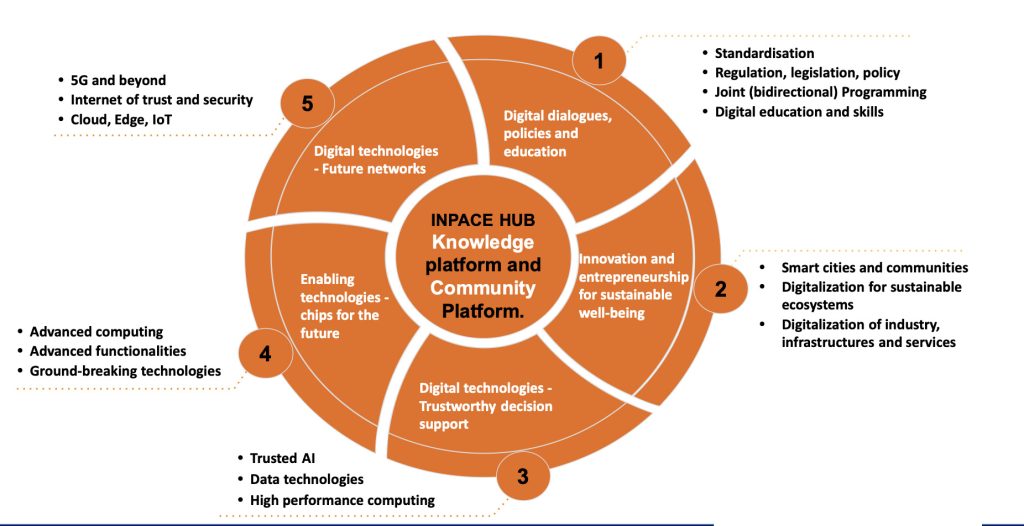
| Clusters | Thematic Working Groups |
|---|---|
| 1. Digital Dialogues, Policies and Education | 1. Standardisation 2. Regulation, legislation, policy 3. Joint (bidirectional) Programming 4. Digital education and skills |
| 2. Innovation and Entrepreneurship for Sustainable Well-Being | 5. Smart cities and communities 6. Digitalisation for sustainable ecosystems 7. Digitalisation of industry, infrastructures and services |
| 3. Digital Technologies – Trustworthy Decision Support | 8. Trusted AI 9. Data technologies 10. High performance computing |
| 4. Enabling technologies – chips for the future | 11. Advanced computing 12. Advanced functionalities 13. Ground-breaking technologies |
| 5. Digital technologies – Future network | 14. 5G and beyond 15. Internet of trust and security 16. Cloud, Edge, IoT |

